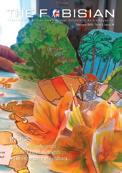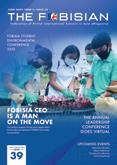THE VOICE
of Tanglin Trust School
Vol 38 / 2022


Vol 38 / 2022

The SEASAC tournaments are finally back, and our athletes did the school proud with their skill, determination, and sportsmanship. Congratulations to all our teams, in particular the Girls’ Football team who were crowned Champions. Our Boys’ Football and Volleyball teams both achieved bronze, while our Girls’ Volleyball team won the Plate.

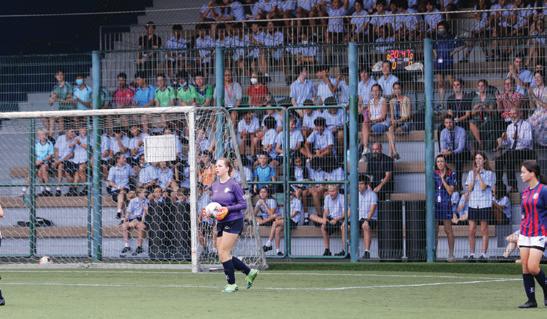
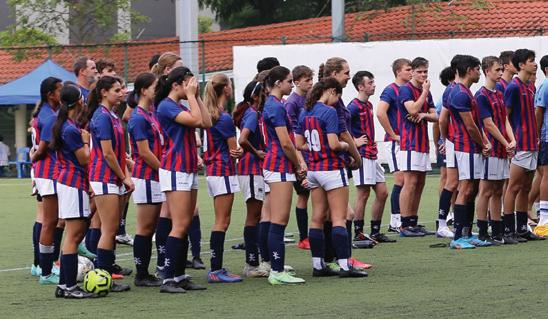
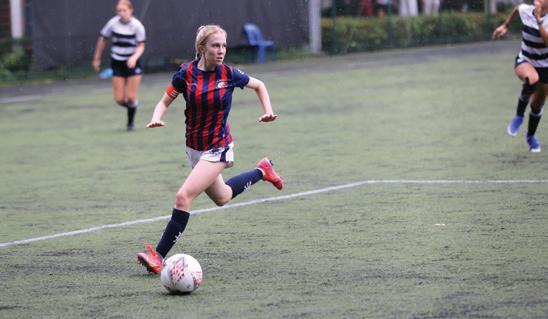
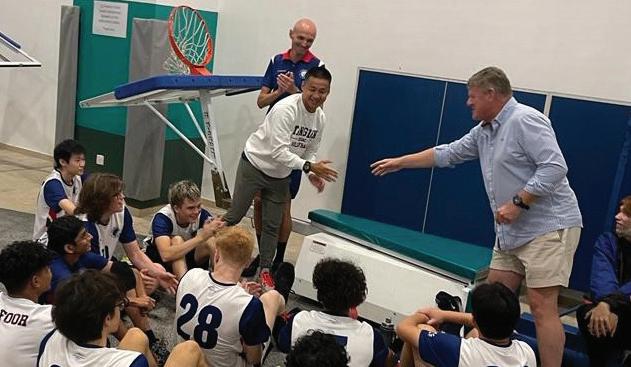
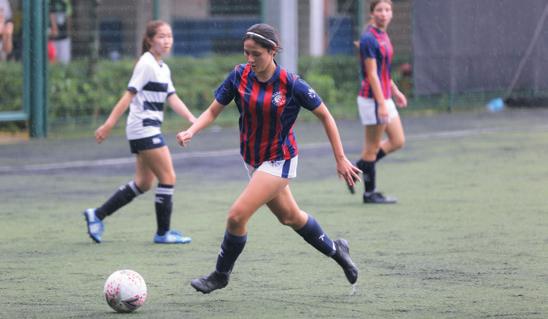
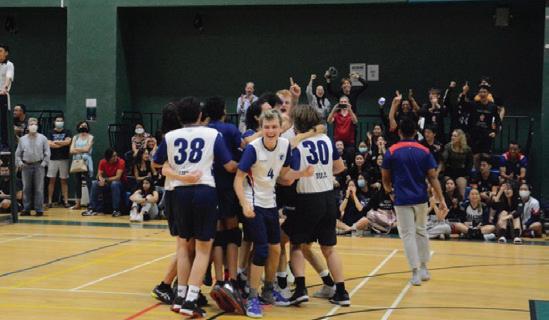
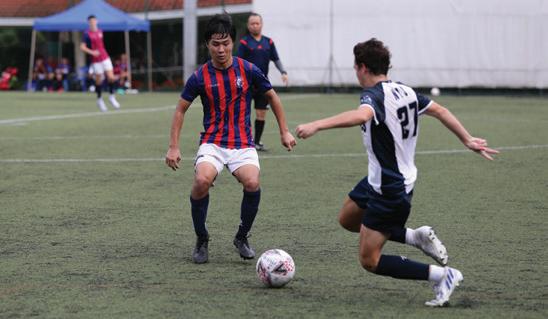

95 Portsdown Road, Singapore 139299
Tel: 6778 0771 Email: communications@tts.edu.sg Website: tts.edu.sg
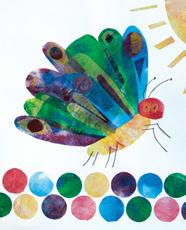

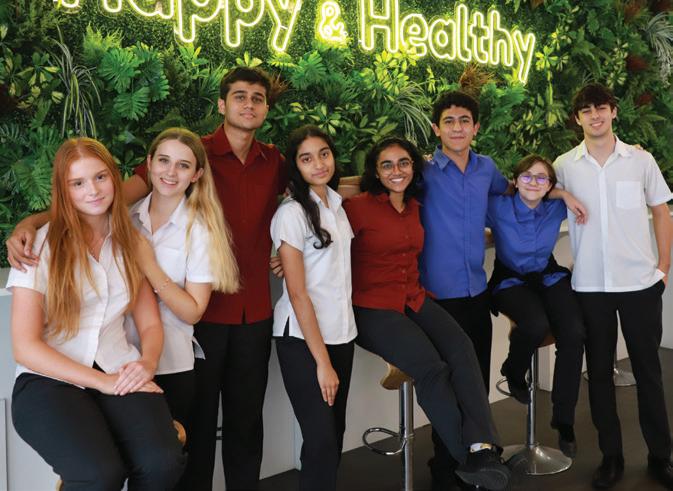
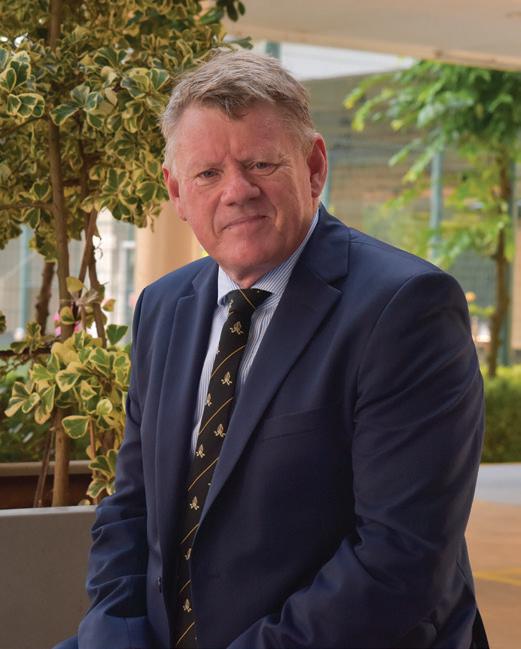
For many of us this year has been full of new beginnings. The shackles of COVID have been broken and we are all rejoicing in the opportunity to return to previous things we have done. But COVID has given us time to consider and reflect, and for most people there have been green shoots of growth, in different directions. This edition of The Voice captures some of Tanglin’s New Beginnings.
One of those New Beginnings has been the establishment of a new strategic plan. This incorporates key themes that have
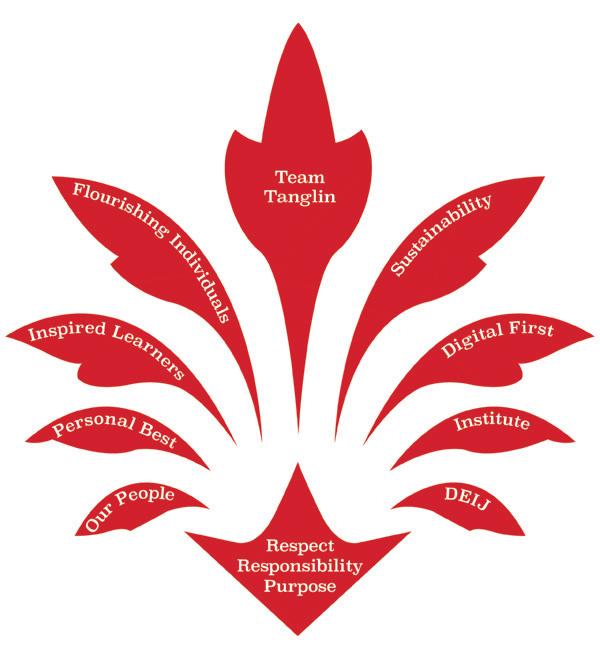
been a part of the school over the previous three years. Inspired Learners, Flourishing Individuals, Personal Best and Our People have been significant umbrellas that have directed much of our work. We have also added several key projects: Sustainability, Digital First, Institute, and DEIJ (Diversity, Equity, Inclusion, and Justice), each being led by a member of the faculty or business staff and creating awareness of key societal and Tanglin issues. Members of the community will hear more about aspects of this framework as the year unfolds.
Other new beginnings are outlined in this excellent edition of The Voice. Students, alumni, staff, and parent leaders contribute so much and there are compelling stories on key leaders; our libraries (including our new Infant Library) create amazing spaces to instill a love of reading and global citizenship; new overt strategies signpost ‘learning to learn’, and our approach to identifying and supporting learning needs is outlined; our alumni begin afresh and many of them took up internships at Tanglin before venturing off to university, work or National Service; and a number of our parents have undertaken new and exciting challenges. Thank you to our editors, authors, photographers and other contributors to this edition of The Voice.
2022 will be remembered for a return to the ‘new normal’ and we had hoped that would include opening the doors of the Tanglin Centenary Building. Alas, not quite, but we will be open at the beginning of Term 2 and we look forward to parents coming in to explore the opportunities your children will have. ■
“
One of those New Beginnings has been the establishment of a new strategic plan. This incorporates key themes that have been a part of the school over the previous three years.
Every new academic year brings exciting opportunities and this year is no different. One example is the SC Ventures programme. This is the first time that SCV is working with a school to deliver a bespoke intrapreneurship programme for Year 12 students and it was made possible thanks to Tanglin parent Lee Dykes.


“I had attended a discussion on STEM and future skills with Sohini from the Institute and saw an opportunity to connect the Institute with my professional network to leverage industry advice for the school. Happily, this connection resulted in an actual programme where students will gain experience using best practice innovation methodologies while developing skills in collaboration, creativity, and resilience”.
So what is this programme all about? Students participating have a unique opportunity to work with experts in entrepreneurship, design thinking, business modelling and pitching so they can learn the skills necessary to develop and sell their ideas to real venture builders at the end of the programme. Participants were selected based on an application process. They submitted an outline of the idea they had to solve one of five problem statements presented to them.
The problem statements were focused on environmental and food sustainability, financial education for children and youth and addressing the needs of marginalised communities. The SCV team was so impressed with our students, they decided to shortlist more candidates than originally planned.
Although it is an intensive programme, our Year 12s are enjoying it immensely and the SCV team have been impressed by their work and enthusiasm. So far, they have come up with ideas that range from food sustainability to refugee integration, and we can’t wait to see what else they can come up with!
Before you head into the Christmas holidays, read what our Tanglin community has been up to recently.
NXplorers 2.0 Journey is a global project championed by the Science Centre Singapore and Shell Singapore. It provides a platform for young people to develop sustainable solutions to food, water, and energy challenges. During the process, students learn systems thinking, and scenario planning, and develop change management skills - all of which are necessary for young people to become positive agents of change.
The competition was intense but we are happy to share that a group of four Year 13 students made it to the shortlist consisting of 19 other Singapore schools! Congratulations to Ishani, Meenakshi, Prishni, and Sara (Team Energryo). They received seed funding from Shell to look at utilising water supplies in Singapore to generate electricity. Specifically, their goal is to build micro-turbines in storm drains to generate electricity in order to augment the local power supply.

The team explained, “We joined the Shell NXplorer’s Journey in January and thought that it would be a great opportunity to tackle energy problems while working on an engineering project together. It was an incredible experience to get shortlisted and to start transforming our ideas into reality. The scope of this project is to generate electricity from underutilised water sources - in our case, by making a small hydro-turbine to place in storm drains. This idea came about when we discussed potential solutions we could implement in pre-existing infrastructure and realised that storm drains are everywhere in Singapore. With the help of the science teachers, technicians, Design & Technology teachers, and the Shell staff, we have been building a prototype to fit in the storm drain on the school grounds.”
The team has built a few prototypes so far and it certainly looks like they are on the right track. All the best, Team Energryo!

It’s not an easy feat to conquer the English Channel, but Tanglin parent Giles Newmarch managed to achieve this milestone by clocking at 11:19hrs in August. Although Giles admitted that he was not a great swimmer, he decided to take up the challenge during the pandemic because the lack of travel meant that it provided the ideal training conditions.
Giles spent 20 months training for the crossing and during the process, he had to prepare his body for prolonged exposure to the Channel’s cold temperatures. He said, “I bought a chest freezer and converted it into a cold bath that I did 3-4 times a week for one hour. I also travelled to Majorca and Sydney for cold water (aka torture) camps, which resulted in daily hyporthermia. The worst was Sydney; after swimming for 7 hours 30 minutes in 15 degrees, I had to be carried out of the water with extreme hypothermia. I also had to put on weight (12 kg) to insulate myself against the cold so my wife Karina and children became my fat coaches and force fed me. I think they enjoyed helping me eat the chocolate and ice cream!”
Sounds like quite the challenge! But we are glad that Giles managed to conquer the English Channel after much hard work and determination. Meanwhile, the Tanglin Alumni network has an English Channel swimmer of our own as well! Remember Daniel Shailer (2018 Cohort) who swam 33 miles across the English Channel and raised more than $24,000 for the Marine Conservation Society? Since then, Daniel has swum two Channel relays in September 2020 and June 2021. During June 2021’s swim, Daniel was Captain of the Cambridge University’s open water swimming team and they were recognised by the Channel Swimming Association for being the fastest relay team of the season. Today, Daniel is studying a Master’s in Journalism at Columbia University and has plans to become a journalist to cover climate stories in the future.

Every summer break, the Tanglin campus undergoes a facelift to prepare for the upcoming school year and this year is no different. The Infant School Library, for example, went through a beautiful transformation so it can better serve the school’s growing needs. Michael Kelly, Head of Infant Library, said, “Built in 2006, the Infant library has been the reading and technology hub for the Infant School. Over the years, the library collection expanded and technology became mobile. In response to these changes, the computer zone was transformed into a maker space to promote creativity with a variety of STEAM activities. The Tanglin community also grew and evolved, so it was decided that it was time for the Infant Library
Congratulations to Ivory S for winning the Sixth Form Chinese category of the Independent Schools’ Modern Language Association (ISMLA) Original Writing Competition! The creative writing competition encouraged students to write a creative response in their preferred language to one of many titles that were provided, so the Year 13 student chose to submit her take on Hitchhikers, a story by Chinese writer and translator Sanmao.
Gloria See, Ivory’s Higher Level (HL) Chinese teacher, said, “Ivory always expresses her opinions with a thoughtful
to transform itself in order to meet the school’s needs.
“As we were designing the new library space, our key focuses were creating a space that was warm and inviting. We hoped to create a third space within the school, a space that was somewhere between home and school that might become the centre of our Infant school community’s learning and wellbeing. With a renewed focus on the centrality of reading and stories to children’s learning journey, the Infant Library redesign was focused on creating cosy reading spaces for children and parents to sit together and share books.”
If you had recently visited the Infant Library, we are sure you’d agree that the refurbishment was a success! Infant children can now enjoy an even better reading experience with spaces such as ‘the hub’ with a touch-screen TV and adjustable mood lighting for storytelling.
Three cheers for Year 10’s Aditi B, who won “Best Speaker” (Silver Division) in the Raffles Debate Academy (RDA) Under-14 Debating Championship! One might think that she’s a seasoned speaker but do you know that it’s her first time participating? David Sheppard, Head of Languages and Classics, told us that Aditi is an ardent reader who loves learning and is very eloquent. In fact, he had been trying to persuade Aditi to join the RDA Championship for the past two years but it was only recently that she agreed to give debating a go. What changed her mind?
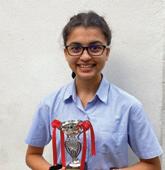
and analytical mind and uses her personal experiences to support her arguments during our Chinese literature discussions. In her ISMLA submission, Ivory used complex grammatical structures and varied vocabulary including many idioms to express her thoughts. I truly enjoy reading her writing.”
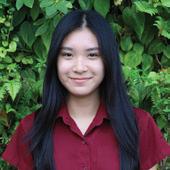
Gloria’s encouragement not only greatly boosted Ivory’s confidence, it also motivated her to think outside the box and gave her ideas to get started. Ivory said, “I’m proud of myself to have such an achievement in Chinese writing. I wasn’t a great writer but this achievement boosted my confidence and proved that as long as I keep practising, I will see a positive outcome.”
Aditi said, “I’d always had an interest in debating, but I think I was too apprehensive about joining! But after giving it some thought, I realised that it would be a good opportunity to experience an actual competition and see how it was like for myself so that I could finally make up my mind about whether I would pursue debating further.
“Going into the competition, I was extremely nervous as it was my first ever formal debate competition, but thanks to the support of my teammates Jamie and Zyra, last year’s team, our coach, Ian, and Mr Sheppard, I found it a lot easier to adjust. After the initial nerves, it was really fun and exciting to work under the time conditions and discuss different topic areas and viewpoints.”
What’s next? Aditi said, “I joined the Scholars’ CCA and I hope to have the opportunity of experiencing more debate competitions!”
Whether it’s through sustainability, art or discussions on diversity, the People of Tanglin are passionate about changing lives for the better. Who are they? Let’s find out.
When did you join Tanglin? What did you do before you joined Tanglin?
I joined Tanglin in August 2001. Prior to Tanglin, I was a stay-athome-mum. When my son was old enough to be independent, I decided to find a full-time job. My friend told me about a housekeeping assistant role at Tanglin, so I applied and started working here. Two years later, I moved on to the Reprographics unit, where I stayed for five years.

I joined the Junior school in 2016 as a Junior Resource Assistant focusing on curriculum support. This year, I was assigned to work
at the Junior library, focusing on library-specific duties such as the return, scanning and general organisation of library books and resources. My current role is perfect for me as I enjoy organising things. I also help in the preparation of art and craft materials for the children, using recycled items such as styrofoam fruit wrappers, plastic bottles, used fabric, etc. I am very passionate about sustainability and recycling, so I truly love what I do.
The best part about working in Tanglin is the opportunity for growth. I learn something new daily, and very often it’s the children whom I am learning new things from. Moving forward, I hope to be able to learn more IT related skills, especially from my younger, more tech-savvy bosses and colleagues!

When did you join Tanglin?
What’s been the most fulfilling part of your career here?
I joined in 2006 and taught in Scotland for two years after graduating. Tanglin has a thriving, vibrant and energetic Arts programme that plays such an important part in school life, and it has been a pleasure to be part of delivering and building this over the years.
From Nursery to Sixth Form, there are many opportunities for students to develop their skills in art, design, drama, music, and filmmaking; facilitating their creative, social, and intellectual development. Our students are inspired by specialist teachers, visiting artists and, very often, one another, to achieve their personal best.
What’s the best thing about working in a school, especially one like Tanglin?
In my role as Head of Arts Faculty, it has been a pleasure to work and collaborate with so many talented Arts specialists, whose main goal is to create the best opportunities for our students. Even during the pandemic, the Arts staff tackled challenges head-on with an ‘out of the box’ approach to find new and innovative ways for the students to create, collaborate and share their talents with the community. As the restrictions were lifted this year, our outstanding team of teachers and technicians worked very hard to create and produce numerous events and live performances for Tanglin’s aspiring artists to share their talents. These events
include Evening of Jazz, Oliver, student-led dance showcase, ARTiculation, our Summer Arts exhibition, Senior Ensembles Concert at the Victoria Concert Hall, and recently hosting the Across Asia Youth Film Festival
What are your hopes for the future?
I am looking forward to utilising the state-of-the-art facilities at the Tanglin Centenary Building when it is ready. It has fantastic resources and offers many new opportunities for our young artists. Also, with the school’s centenary year on the horizon, the Arts Faculty will play a huge role in celebrating this with the school community. I have spent most of my teaching career at Tanglin and look forward to many more years inspiring and working with the artistic talent of tomorrow. »
I am looking forward to utilising the state-of-the-art facilities at the Tanglin Centenary Building when it is ready.Josephine (Josie) Allen
When did you join Tanglin? What did you do before you joined Tanglin?
I joined Tanglin in 2019 as Head of English Faculty, so much of my time here has been marked by COVID. I would still say it has been the most rewarding time of my career so far, which is testament to what an amazing school and community Tanglin is! Before Tanglin, I was Head of English Faculty at Harrow International School in Bangkok, and before that I worked as a teacher and Assistant Head of Faculty in Bristol, UK.

Tell us more about yourself.
I am positive, enthusiastic, and passionate! I am guided by a strong belief in an
equitable and just society in both my personal and professional lives, and I am committed to the work Tanglin is doing to further Diversity, Equity, Inclusion, and Justice (DEIJ) in the school and wider community.
What’s been the most fulfilling part of your career at Tanglin?
Tanglin is an incredible community of learners, both in the students who are curious and engaged in their studies, and the teachers, who are committed to learning and growing professionally. I’m currently very rewarded by the work we are doing to develop DEIJ in Tanglin. It is often deep and challenging work, but vital for our whole community. It
has been incredibly fulfilling to take part in this alongside so many other dedicated colleagues across the school community.
The students of course! No two days are ever the same, and I feel very fortunate to have a career where you genuinely feel you are making a difference to the future of young people. I believe that future generations hold the key to creating a more equitable and just world, and it is so rewarding to feel that in some way you are contributing to that process.
I feel that we all, and particularly young people, have lived through a very difficult few years, with the COVID pandemic and now the conflict in Ukraine. I can only hope that we learn from these terrible events
and move forward as a more united global community. The DEIJ work we are doing in Tanglin gives me hope of that, as does speaking to young people. I love listening to their insights about the issues affecting all of our lives and seeing their drive to make the world a better place.
‘‘
I feel very fortunate to have a career where you genuinely feel you are making a difference to the future of young people.
I joined Tanglin as a supply teacher in 2008, when my partner was offered a role in Singapore. Before that I was the Head of the PE Department at Mulberry School for Girls in Whitechapel, East London. I had an amazing five years there, learning all about the different cultures and coaching girls to play football and basketball across inner city London. In 2010, I gained a full teaching post at Tanglin, with the responsibility of coaching Touch Football. Although Touch wasn’t a sport that I was familiar with, I realised that having a competitive background in Rugby Union 15’s and 7’s allowed me to bring transferable knowledge and passion into a new sport, which is now my “identity” within the school.
The most fulfilling part of my career at Tanglin is seeing the students continue to play Touch once they have left school and start University. I have 11 alumni players (both boys and girls) who have gone on to represent for their countries, students who have set up their own university’s sides, students who have gone on to play for both Premier clubs and university teams and students who have just enjoyed the game at Tanglin and continued to play at a recreational level years after leaving school. To know that they have continued to play and represent, means the experience they gained playing Touch at Tanglin was one of fun times.

This is my 15th year at Tanglin. Before I came here, I was in the UK and Spain. Tanglin has a worldwide reputation for excellence and upon looking for an international posting, it quickly stood out as one of the top options. Living in Asia and particularly Singapore was (and still is) very appealing to me, too.
The most fulfilling part of my career at Tanglin is observing the growth of the young people we educate. One of the things that define Tanglin for me is how many students come back to visit after graduating. It is such a special occasion when students who are at university come back to Singapore and make the trip to school to see their former teachers and share their amazing experiences. Their excitement in returning to Tanglin is very indicative of the sort of experience students have here.
What
One of my most memorable moments was when we organised and ran the Barcelona Spanish-Art trip, and I was able to show
a group of Tanglin students my home country and share my culture with them.
After a few years as the Head of the Languages and Classics Faculty, I started my new role as Assistant Head (Academic) in the Senior School. With an extremely exciting new Leadership team, I am looking forward to working with my colleagues and contributing to the outstanding work that happens daily in school.
■

When did you join Tanglin? What did you do before you joined Tanglin?
How long have you been with Tanglin? What did you do before you joined Tanglin?
What do you love best about working in Tanglin?
are some of your best memories in Tanglin?
INFANT






Over the summer holidays, the Infant Library had a big renovation, and we were very excited to be asked to create some artwork for their empty walls. A few children from each year group worked with Miss Stephanie, the Art STLA, to create a masterpiece linked to a book studied in that year group. There was a mixture of painting, printing, drawing, and collage to create these eye-catching works of art. Here are the books that the children were inspired by:
•
•
•
•

 By Peter Hinckley, Head of Junior Art & Design
By Peter Hinckley, Head of Junior Art & Design
This term, Year 6 students are investigating World War 2. In Art, we focused on the visual symbolic representation in terms of the positive attributes of peace, harmony, unity, and togetherness, as a contrast to the negative aspects of World War 2. Our objective was to nurture a creative and positive response by the students, through providing a design brief that focused on creating a sculpture that was inclusive to all with a shared message of unity and togetherness. The design would be a prototype for a larger sculpture that could be seen in a public area such as a park.
To strengthen the shared meaning, the students created sculptural forms that were abstract in form rather than a high naturalistic approach. For example, some students created doves of peace, however their designs were a representation of a bird not a detailed realistic model. Others focused on calming shapes and forms that suggested togetherness using Barbara Hepworth’s work as an inspiration.


In addition, linking to our school’s focus on diversity and
inclusion, we asked the students to try to create a sculpture that could generate a shared response to all people. We investigated a range of sculptures and discussed if they were aimed at a specific gender, race, geography or opinion. For example, statues of historical events that happened in World War 2 in Western Europe or commeration of battles in the Pacific.
The children felt that it was important to try and create a sculpture that would be inclusive to all. Looking at the peace sculptures of the Nagasaki Peace Park and the artwork of Barbara Hepworth, the children sketched their ideas, annotated their thoughts and designed their sculptures.
In ceramics sessions, they learned how to create sculptural forms using techniques to join clay to clay and to make abstract forms. They also explored how to create a finished surface effect to their sculptures through careful use of hand and sponge techniques. After firing in the work in the kiln, the students glazed their sculptures choosing pastels colours.


As artists, our toolkit is shaped by our experiences. In the Senior Art and Design curriculum we encourage students to draw on their encounters with the world and make meaningful work. Our recent IB cohort was applauded for its authentic work that reflected the personal experiences of our students. IB Visual Arts DP is a fantastic Group 6 subject that allows students to make sense of their world through visual constructions. It offers an opportunity for students to develop the IB learner profile in a genuine way. Visual Arts is not discipline specific, in fact transdisciplinary research is at its core.
Students not only create stunning artwork in the IB course; there is also the opportunity to engage in academic art historical enquiry. It is not just a practical subject but also must be acknowledged as an academically rigorous one.
Last year’s art historical essays considered representations of the male figure from classical Greece to contemporary
art; how artists have represented notions of restriction, and how artists have used their work to redefine the complexities of intimate relationships.
Representational art is always welcomed in our department, but the outcomes become even more stimulating when work is ambiguous in visual literacy and conceptual in content. Good art should make its audience think, question and reflect. Topics such as transient lifestyles, complexities of the home environment, COVID academic disruptions and the growing popularity in fast fashion were some of the topics that were dealt with. In doing so, our artists used their materials sensitively and creatively to conjure up artwork of an exceptional standard. They curated their own exhibitions that showcased their narratives. Unsurprisingly our Visual Art results were once again outstanding and we are immensely proud of what the students achieved! ■






By now, you’d have heard of The Institute@ Tanglin - a space that will bring together a range of current and future disciplines, teachers, learners, facilitators, and mentors to work collaboratively. But how much do you know about Sohini Brandon-King, who oversees The Institute? Join us as we catch up with the newly minted Director of Scholarship, Inquiry, and Partnerships.



I have had a career in the UK, US, and Singapore in higher education management, strategy consulting, and public policy roles for governments across these countries. Taking on these different roles in unfamiliar environments helped me grow in both a personal and professional capacity. Many of my choices were shaped by great mentors, and meeting people with inspiring stories who encouraged me to push myself beyond my comfort zone.
What was the most memorable part of your career so far?
It’s definitely the time when I was given the great privilege of being seconded by Deloitte to work for the London Organising Committee of the Olympic and Paralympic Games (LOCOG) as the Project Manager to organise International Paralympic Day in Trafalgar Square in 2011.
We created so much buzz and excitement with plans for the day when the then Prime Minister and Mayor of London, David Cameron and Boris Johnson, requested to attend and play a doubles tennis match with wheelchair tennis athletes. This helped to boost ticket sales for the Paralympic Games way beyond expectations. The inspiring athletes, staff, and leadership of LOCOG, the incredible culture driving the Games, and the complexity of the project, made this an unforgettable experience.
To prepare future leaders, we need experts and organisations outside of a school curriculum and environment, to provide perspectives, knowledge, and insight into the jobs of the future, and encourage students to think about how they will tackle the challenges they will face in their professional and personal lives.
I hope that the Institute@Tanglin can play some part in bringing people, growth opportunities, and a range of experiences and perspectives to the community and encourage us to think about the biggest challenges we face, provide a toolkit of skills and capabilities to address these and fuel discourse on these matters both in and outside of our school environment.
After speaking with Tanglin’s stakeholders, what is your roadmap for The Institute?
I joined the school in Term 3 last year and spent my first few months asking faculty, leadership, parents, and other external stakeholders what they thought the Institute should be, what type of programming it should have and what purpose it will serve.
After speaking with them, we came up with the vision to inspire, challenge, and prepare the next generation of leaders in our community, by promoting excellence, providing thought leadership, and encouraging discourse.
SCHOLARSHIP:
We encourage both faculty members and students to nurture a deeper interest in in-depth studies by providing a platform to present and discuss research with experts from academia and various industries as well as creating niche courses of study.

INQUIRY:
We provide opportunities outside the classroom to develop important life skills, capabilities, and interdisciplinary thinking through hands-on learning experiences like entrepreneurship projects, mentorships, and workshops with external experts.
We plan to engage the wider Tanglin and Singapore community with external collaborations with corporate, government, and educational entities in the delivery of Institute programmes. By doing this, we hope to position Tanglin as a centre for thought leadership and not just a school.
DISCOURSE:
We will organise a series of forums and discussions with inspiring individuals and organisations across a range of expertise. This will not only challenge and expand our thinking across Tanglin’s strategic themes, it will also inspire discourse and learning across different disciplines in and outside of the classroom.
Why is thought leadership important for an educational institution like Tanglin?
I hope that the Institute can play some part in bringing people, growth opportunities, and a range of experiences and perspectives to the community and encourage us to think about the biggest challenges we face.
To date, we have delivered our first Speaker Series featuring David Faulkner. David is an Olympic Gold medallist in Hockey (Seoul 1988) and was awarded an MBE for his services in Sport in 2021. During his sessions, he met our students, parents, and faculty as well as people from other schools to discuss how best to support our children’s aspirations in sport, athlete development, and DEI (Diversity, Equity, and Inclusion). Keeping with the excellence in sport theme, we also hosted an evening with former England Cricket captain Adam Holliaoke. He shared his inspiring journey in professional cricket where he explored the commercial driven changes in the modern game and discussed the implications for young aspiring cricketers as well as the future of the sport in UK and globally.

All in all, the sessions sparked interesting discussions and questions from students, parents, and teachers. We are happy that everything has gone well and look forward to organising similar events in the future. We welcome our community to join us on such events, so do check The Institute page on the Tanglin Trust School website for more information.
We have just set up a corporate partnership with SC Ventures to run a pilot entrepreneurship programme for CAS (Creativity, Activity, Service) and hosting an upcoming faculty research
forum in December. During the forum, the Vice President for Floorcare at Dyson will present a keynote speech on R&D, followed by breakouts for presentations and discussions. This forum is a great opportunity for our faculty as well as those from other international schools to present and discuss their research with their peers.
Since The Institute is positioning itself as a centre for thought leadership, what other audiences will it cater to?
We hope that it will cater to a wide audience, within and outside the Tanglin community. This includes parents, OneNorth businesses, and the wider community across different sectors in Singapore such as corporates, other educational institutions, NGOs, and the government.
Tell us something people wouldn’t know from your resume.
Having spent time in New Orleans as a child, I love Creole food, which is hard to find in Singapore. So, if you know any good restaurants serving Creole cuisine or have a good family recipe to share, I would love to hear from you!
Prioritising your financial goals means you can enjoy what matters to you. As the leading global provider of tax, estates and financial planning advice we’ve been helping clients achieve financial freedom for over 120 years.
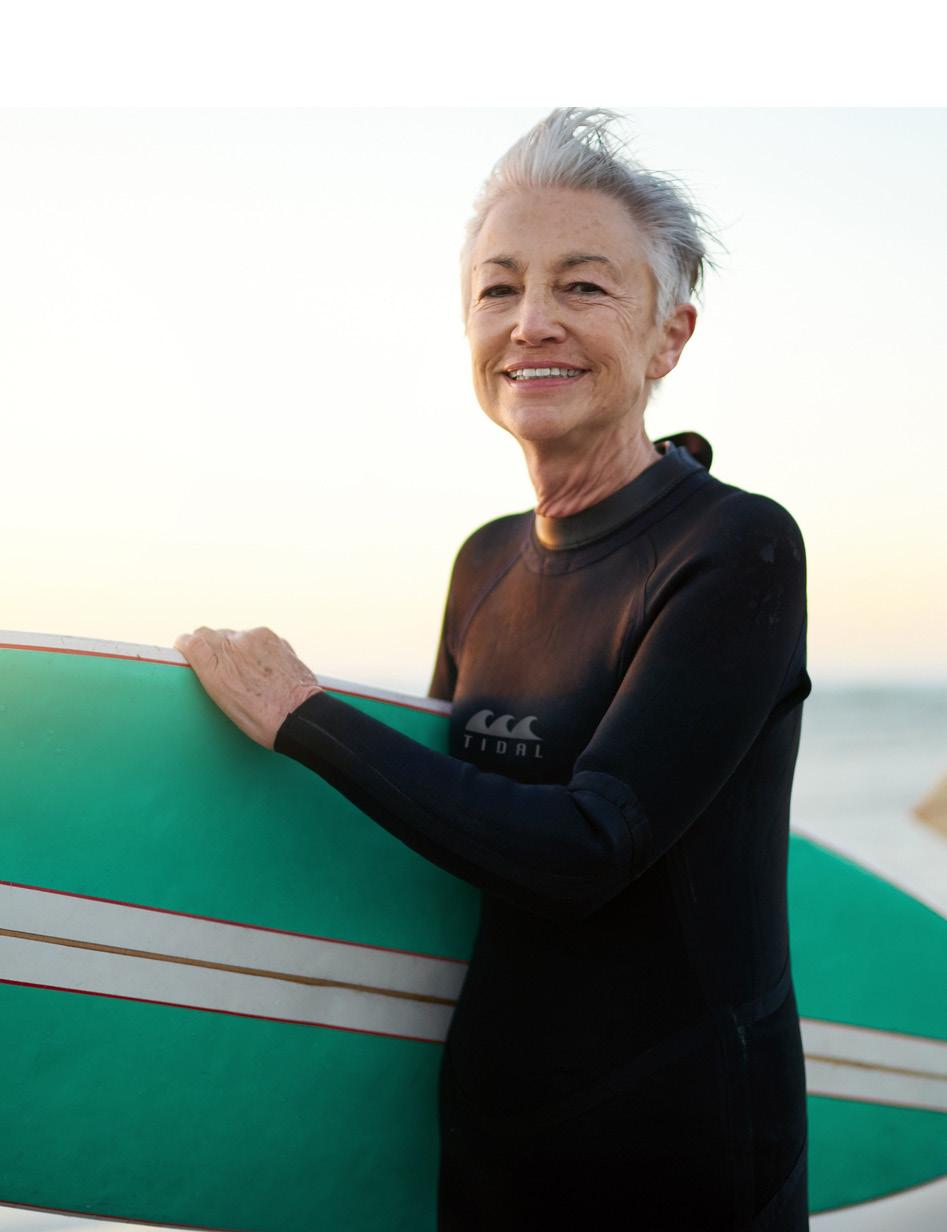
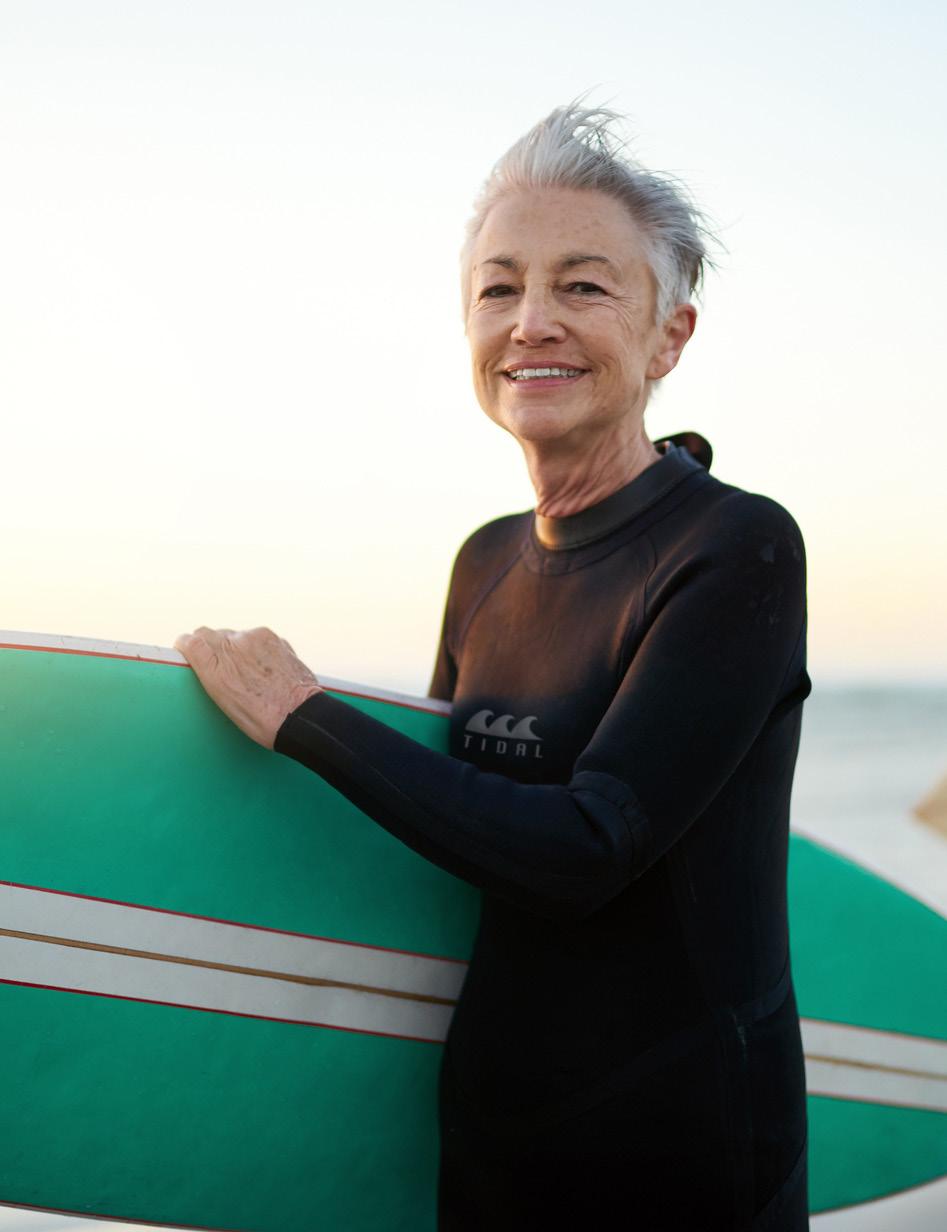
New year, new beginnings! Throughout the years, Tanglin has been blessed to count many talented and passionate individuals among its community. This year we welcomed some new senior leaders to the Tanglin - Chris Seal (Head of Senior School), Laura Heyworth (Head of Middle School), and Rachel Turpin (Deputy Head of Junior School). What makes them tick? Let’s find out.
CHRIS SEAL HEAD OF SENIOR SCHOOLI have been in education all my working life, starting in the state sector at Dartford Grammar School. At a relatively young age, I became Head of Physical Education at Woodbridge, a lovely independent school in Suffolk. Whilst there, I married my wife Sam and I started playing Minor Counties cricket for Suffolk.
In 2002, I became Director of Sport at Trent College. Shortly after that, I made a life-changing decision to move into a boarding Housemaster role. Although it was incredibly challenging, I look



back on that time with great fondness. The role was incredibly rewarding, I was still playing sport to a high level, and both our girls Molly and Amy were born in the Midlands and christened in the school chapel. At one point, I ran the boys’ house of 55 boys while Sam ran the girls’ house of 30 girls to cover for our colleague who was on maternity leave. Looking back I’m not sure how we did it, but it was great fun.
2008 saw a move to Ascot and my first senior leadership role as Director of Boarding, which quickly became the Deputy Head Pastoral at Licensed Victuallers’ School. I enjoyed my time there immensely, teaching History, coaching the 1st XV, and leading a wonderful community. Then in 2011, I had the opportunity to join Millfield. Anyone interested in sport in the UK would understand the draw to work in such an incredible sporting
environment. Working with nearly 1000 boarders was also a full immersion into boarding life and I learned so much from those skilled practitioners around me over time.
Having seemingly done reasonably well over a period of time, I began wondering about leading a school of my own, and in 2017, I joined Shrewsbury International School Bangkok as Principal. This incredible school right alongside the River of Kings in central Bangkok provided a vibrant and varied experience that shaped me and our family. Molly graduated from the school in 2020 to go to Loughborough (where Sam and I met) and Amy will be attending Oxford this year after a quiet but wonderful education at Shrewsbury.
So here we are in Singapore with an empty nest, but plenty of enthusiasm for another great experience.

Having been appointed in 2021, I spent nearly a year getting to know the school through Zoom or Teams and so the only thing I had to go on were the people – they are seriously impressive! The opportunity to reform the Senior School Leadership Team afforded me many conversations with senior leaders and hugely capable middle leaders. Upon arriving on a visit in April and again now as term starts, everything I saw online is real, the people at Tanglin make the school. The students are bright, inquisitive, polite, and energetic and the parents I’ve met so far have been incredibly welcoming.
I was attracted to apply to the role by the ambitions of the governing body and this has already been reaffirmed in early exchanges. I look forward to supporting CEO Craig Considine in delivering on the promise that Tanglin should be a leader in global education.

It is crucial in any new role to listen and learn. Tanglin is already a great school and as such, it would be arrogant and naïve to impose myself without regard for what is already in place or what has gone before. My focus is to build on the good work established through the pandemic and in the short term ensure that we come out of a challenging time confidently and safely. I have already signalled my intent around moving swiftly to widen the experiences of our students and it was great to be with the Year 7s on their activity day.
“
My focus is to build on the good work established through the pandemic and in the short term ensure that we come out of a challenging time confidently and safely.
Equally, the academic domain requires us to ensure that the Class of 2023 can compete in a university market that has seen some turbulence in recent times. This requires the combination of academic aspiration and the messaging that comes with that (such as Claire Russell’s excellent initiative “The Year of the Pen”), and strongly supporting and refining the excellent pastoral systems at Tanglin to provide secure pathways for all.

In a nutshell, I aim to make an already great school, even greater. So much of what happens at Tanglin is already offering a great education to the students and providing life chances that are the envy of many schools worldwide. Given my experience in various settings, I will seek to continue driving forward academic aspiration in a proportionate and realistic manner, but also seek to provide a much broader and deeper experience for all students.
Education is a wonderful and complex open-ended task, and so if any school claims to have ‘mastered it’, they have not understood the brief and will swiftly become irrelevant. I wish to see the Tanglin Senior School, so well supported by our brilliant Infant and Junior provision, be at the cutting edge of education progress and reform across the region and subsequently in a global field. We have the people, the resources, and the determination so this should be an exciting journey.

I always knew I wanted to be a teacher, even when I was in primary school I found great joy trying to teach my younger sibling things I had been learning at school! So for me school was about realising what my true academic passions were, and I found them in Biology and Geography. I grew up (literally) in the great outdoors, spending almost every weekend in the Lake District fells. Growing up in that part of the world has shaped me hugely as a person; I care deeply about nature, the environment and sustainability. This led me to a degree in Zoology at Durham, and from there to starting out in my teaching career in the North East of England where I progressed to leading a Biology department after two years. After a decade teaching in the UK, I followed my now husband to Singapore, switching from academic to pastoral leadership as a Head of Grade at SJI International. Here I began to fully understand how wellbeing underpins achievement. I am passionate about a holistic approach to learning and so prior to my move to Tanglin, I took on the role of Co-ordinator of Learning (IGCSE) spanning the academic and pastoral areas of Year 10 and 11. This experience across a wide variety of school contexts will help me to lead and drive the vision for Middle School at Tanglin.
I have been impressed by many things, but what has stood out most is the quality of the staff who are so willing to go above and beyond to support the students’ wellbeing and provide a multitude of opportunities to ensure they are stretched, challenged and given the best platform possible to realise their potential, both inside and outside the classroom. Every morning before school starts, students get fantastic coaching in the swimming pool and every evening students are out on the playing field being guided through a host of different sports. I've already been wowed by drama productions and music concerts, and have been thrilled to be a judge in the Middle School English speaking competition. All of these enriching opportunities take a huge amount of time and dedication from the wonderful staff we have at Tanglin.
I have also been impressed by seeing the students living the school’s core values of respect, responsibility, and purpose. The students are motivated, enthusiastic, happy people and I’ve found them to be very welcoming to new staff and students. The absence

of mobile phones in students' hands around the school site is a delight – it’s refreshing to be warmly greeted by students when passing them on the corridors, which wouldn’t happen if their heads were to be looking down at their phones! It is very apparent that the students are proud to be at Tanglin, and I'm equally proud to work at the school.
The concept of a Middle School, rather than a Key Stage 3, is relatively new for Tanglin. My main focus this year is to work with the pastoral and leadership team to establish a clear vision of what the Middle School stands for. In doing this, the personal and academic growth of the students will be a key focus. Wellbeing underpins achievement, so if we focus on ensuring every child has the support they need to develop their strengths, while also being encouraged to try new things in and out of the classroom, they will grow as individuals and learn
RACHEL TURPIN DEPUTY HEAD OF JUNIOR SCHOOLBefore Tanglin, I had been teaching for 25 years in the UK. I started out in the state system in Kingston, Surrey, before moving to Thomas’s Battersea, a leading London prep school, in 2004. I became the Head of its Middle School from 2013, where I oversaw the academic, pastoral, and operational needs of Years 3-5.

I then moved to Singapore in August 2022, kicking off a new and exciting adventure for myself and my family. I had visited previously as a young backpacker after university but never since, so this move was definitely a leap of faith! A few ex-colleagues currently work in Singapore as teachers and many friends have links to Singapore. Their positive reflections were integral to our decision to relocate, and they all put Tanglin on the map for us. Tanglin has a very strong reputation back in the UK and following my own research, it became clear to me that Tanglin would be a perfect match. I was lucky that the Deputy Headship came up when it did.
To me, education is all about outstanding pastoral care and an inspiring curriculum. When you get those right, the children fly and they develop the skills they need for life – confidence, collaboration, creativity, emotional intelligence, and critical thinking. Tanglin has children’s wellbeing at the heart of all they do, and I have been so impressed with their focus on emotional development.
I have only been at Tanglin for a few months, but every day has been exciting. It has been incredibly busy as I try to get on top of new systems and get to know the pupils and the staff, but I am loving the energy here at Tanglin. The staff are determined to push forward and embrace change, challenging pedagogy and ensuring that their teaching style is forward-thinking. There is a real sense of camaraderie within the Junior School and a lot of laughter. I bring a lot of experience to Tanglin but every day I feel challenged and that is what I was looking for.
more about themselves as they progress. This will enable them to make more informed choices moving into Upper School.

Although I’ve only been at Tanglin for a short time, I can already see that the Middle School is fantastic. Having said that, I believe we should always seek ways to improve, refine and stay relevant. I'm passionate about improving student understanding of service learning and how they can identify with the UN sustainable development goals; ensuring we are preparing children not only for learning and the rigour of the examination years, but also ensuring students develop their understanding of global issues and engaging with them in a meaningful way. Tanglin's vision to aspire to be the best school in the world resonates strongly with me. The world is changing at an ever-increasing pace and therefore the future plans of the Middle School will have agility, flexibility and growth at the core of what we do.
What will be your main focus for Junior
Currently, we are working on improving our methods of feedback to the children so that we are responding to their work with greater effect. I am working with the staff, using research to trial different methods to help the children meet personal targets to aid progress. We are trying to move away from the more traditional marking in books, which has proven to be ineffective. I am keen to further the journey of technology in the classroom at Tanglin, now that every pupil has their own device, and I look forward to embedding our 3-14 Curriculum, with a review of the overarching topics. I am passionate about offering a creative curriculum and have had a lot of experience with an inquiry approach, so that will be a longer-term goal.
With the Tanglin Centenary Building opening soon, the Junior School is turning its attention to a new Arts Hub. I am so excited to be part of those discussions as we focus on our broad curriculum and think about designing a space that will inspire our pupils and staff. Moving away from London and the stressful 11+/13+ process, I know that the pupils of Tanglin are so lucky – they have superb resources and so many opportunities, including a range of CCA activities, without the pressures of exams at such an early age. That is very special. ■
Tanglin welcomes a new Head team every year and this year is no different - with one exception. The Head team now also contributes to and supports Tanglin’s key strategic themes and projects. We catch up with the team to find out what has changed and what they have planned for the year.
In 2019, Tanglin took on several initiatives to frame a “One School, Exciting Futures” strategic plan. As Tanglin moves towards its centenary in 2025, that plan was revised to “Towards 100 Years of Excellence”. It provides a clear direction for the school’s journey and identifies these key areas for development: Inspired Learners, Flourishing Individuals, Personal Best, Team Tanglin, Sustainable Future, and Our People.
Guided by these strategic themes and projects, the Head Team is realigned to support the school’s aspirations. This time, instead of being led by the Head Boy and Girl, the team is led by two Lead Students (Suzanne G and Haider M). Six other students will oversee their respective initiatives in:
• Student Welfare (Ava L)
• 100 Years of Excellence (Suchitra A)
• Digital First (Louis D)
• Academic Edge (Abhay G)

• Environment & Sustainability (Isabel D)
• Team Tanglin (Claudia U)
Now that we understand their areas of responsibility better, what are their strategic plans for the school year?
As Lead Students, Suzanne and Haider coordinate the rest of the Head Team and oversee the progress of the initiatives. Suzanne explained, “our goals are going to be directed by the students, meeting their needs as well as possible. Through Head Team clinics and vertical team meetings, we will be able to gauge the most pressing issues that students face and find solutions to them by communicating with the initiative leaders and teachers, and bridge the gap between faculty and students.”
Haider couldn’t have agreed more. He said, “As a lead student along with Suzi, my responsibility is to oversee all six of Tanglin’s initiatives by supporting the initiative leaders to reach their goals of improving school life at Tanglin. I am also a point of

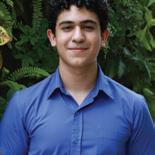
contact for students and teachers who have any concerns or want to take action to positively impact the school. I also act as a representative for the student body, which means if students are calling for change, I’m there to communicate their message, give support and voice any issues.”
As the student leader responsible for student welfare, Ava’s objectives lie in three main areas: safeguarding, wellbeing and DEIJ (Diversity, Equity, Inclusion, and Justice). She said, “I think that the biggest challenge facing Tanglin at the moment is the division and mental stress that has arisen in the wake of COVID. Students don’t feel as connected to each other as their year groups were forced to remain separate during the pandemic, and they have greater amounts of academic and holistic stress because of the uncertainty and constant change over the past few years.”
With that in mind, Ava planned to ensure that students have ample opportunities to speak about what they care about, both inside and outside of lessons, through discussion groups and more discussions around current affairs. From this, she hoped to push for more diversity groups where students can form supportive and respectful communities, while also integrating more discussions surrounding diversity in the classroom so students can become more informed about diverse experiences.
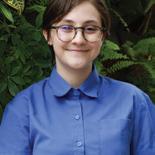
“ Our goals are going to be directed by the students, meeting their needs as well as possible.
- Suzanne, Lead Student
Tanglin will be celebrating its 100th birthday in 2025. What better way to commemorate the occasion than the ‘100 Years of Excellence’ initiative? Suchitra certainly thought so. She told us, “This initiative really resonated with me because of my love for history. History gives us the chance to look back and reflect in order to improve as we move forward, and I think the value of this is sometimes overlooked. Throughout my work in this area, I hope to highlight the many milestones we have overcome as a school, the people of Tanglin who make up our 100 Years of Excellence and encourage our community to think about the mark they would like to leave behind in Tanglin’s history. Some plans that I have in hopes of achieving these goals are creating a student-run podcast and an area to celebrate our heritage in our new Centenary building, amongst others.”
This initiative couldn’t have come at a better time. For the past few years, COVID restrictions had segregated Tanglin’s three schools. In Suchitra’s opinion, this impacted the culture of bringing the Tanglin community together through events and communication has definitely been affected. “It would
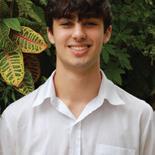


be amazing if we could slowly bring those connections back and support events all over school,” she said with a smile.
Tanglin aims to nurture and inspire lifelong learners who develop international mindedness that allows them to contribute to the world with confidence. Aside from constantly enriching its 3-18 curriculum and co-curricular activities, Tanglin also aims to help students become digitally literate in a world of ever-evolving technology. Louis, the Digital First representative, told us, “One of my main priorities is to help new students have a seamless transition into using the vast variety of technology that Tanglin utilises. As part of this, I am attempting to implement a ‘Tech Buddy’ system allowing students to have an initial contact to teach them and provide support throughout their first few weeks.”
At the same time, he also wanted to find the balance between using technology and the traditional way of learning. Louis explained, “over the course of COVID-19, we used lots of new technology as required for remote learning, and as we move forward, we must be diligent in combining these with the traditional methods to provide the best learning experience.”
Academic excellence is a given, but what about academic edge? Abhay explained, “it’s all about making education at Tanglin better, enjoyable, and beneficial. With the guidance of Ms Sohini (Director of Scholarship, Inquiry and Partnerships) at the Institute, I hope to give students an edge in school and beyond through initiatives like improving their financial literacy. I hope to do this through audio-visual presentations which can be presented in LifeSkills lessons to educate different financial concepts based on their age. For instance, Junior students will be taught simple concepts such as saving, budgeting, and differentiating between needs and wants. For the older students, I plan to host an event to educate them about more advanced concepts such as investing, stocks and cryptocurrency.”
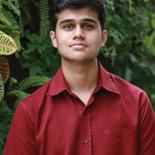
Climate apathy is a big challenge in the world today and Isabel is determined to overcome it. She said, “I believe that there is a lack of engagement in the issue of climate change so it’s vital that we engage young people because they will be a large part of the solution.” To that end, Isabel plans to create awareness around sustainability by highlighting careers in areas of sustainability as well as leveraging on the school’s core values of Respect, Responsibility, and Purpose to generate focus around the UN
Sustainable Development Goals. She explained, “many people around the world care about sustainability but just don’t know what to do. This is why I’m focusing on educating, increasing awareness of sustainable solutions and what students can do to make a positive change.”
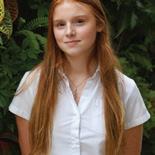

As a worried Year 4 student, Claudia struggled with the prospect of leaving her school life and friends in the UK. But it wasn’t long before she felt that Tanglin was her home away from home, thanks to the activities she joined. She said, “the school has not only supported me through times of struggle, it has also taught me the importance of getting involved and making the most of the vast opportunities Tanglin has to offer.” With that in mind, Claudia’s mission is to make a strong ‘post-COVID debut’ as a community that has a fresh, high level of enthusiasm and excitement for everyday life at Tanglin.


“I am focusing on increasing opportunities, encouraging students to get involved, and organising events to bring our wider community together. I also want to emphasise the importance of ‘unlocking faces’ within the community and maintaining connections; this will help to strengthen morning smiles and give each student an increased sense of belonging on campus!”
■
Looks like the Head Team has an outstanding plan. We can’t wait to see what you accomplish!
“ I hope to give students an edge in school and beyond through initiatives like improving their financial literacy.










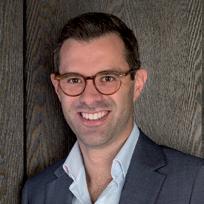




Jo Osman (Academic Deputy Headteacher) and Deborah Pearce (Head of Enhanced Provision) explain how they do this through Enhanced Provision.

We have always had outstanding provision in the Infant School for Learning Support, Precision Teaching and Enrichment to support children
who have additional learning needs. Fresh out of the pandemic, the Infant Leadership Team took the opportunity to review and slightly restructure departments to meet the needs of children who, among others, have been affected by over two years of masks and restrictions. This led to the creation of a new, separate department known as Enhanced Provision. Unlike Learning Support, which supports children with diagnosed learning difficulties, this new department focuses on two aspects.
The first is precision teaching, supporting children whose progress in a specific area may have stalled or slowed, putting them at risk of falling behind their peers. These groups may include children who need more focused, intensive and repetitive practice of basic concepts in English or Mathematics in order to feel secure and move forwards. Or perhaps they may be new to Tanglin and need some intensive additional sessions to help them rapidly fill any gaps and access classroom teaching alongside


their peers. To this end the department comprises of two Precision Teachers, Mrs Deborah Pearce and Mrs Leanne Dean, and two Enhanced Provision Teaching and Learning Assistants, Ms Festin and Ms Lynn, all of whom have a great deal of experience and expertise in helping children develop confidence, whilst also rapidly accelerating their progress.
The other aspect of Enhanced Provision is through Enrichment, led for many years by our expert, Mrs Kelly Lapping. Mrs Lapping helps teachers identify children who have an exceptional aptitude or passion within English or Mathematics who might benefit from being further challenged in a group of like-minded peers outside of the classroom for a few weeks. As a school we believe in challenging all children, and all colleagues are trained to differentiate, stretching the expectations of even the highest fliers within the regular classroom setting. The enrichment sessions require children to think outside of the box, apply their knowledge in unfamiliar ways and utilise their communication, collaboration and concentration skills with new friends, so the dynamics of the working group are key. The ultimate aim of our enrichment programme is not to teach more content, but to inspire curiosity, build learning resilience and further ignite passions.

The Enhanced Provision department has already made a fantastic start to the year. They immediately identified children transitioning into new classes and year groups who needed a boost in specific areas, including many new children to Years 1 and 2. A great deal of focus has been directed at supporting children with their phonics. This is key to becoming a successful reader and writer, affecting the whole curriculum. With the new implementation of Read Write Inc across the Infant School, the team have worked closely with the children to identify their strengths and areas for growth so any gaps can be filled rapidly. Even our youngest readers in Reception have enjoyed meeting ‘Fred’ the frog, who is teaching them how to blend those all-important letter sounds. Look out for F-r-e-d next time you are in school!
The enrichment sessions require children to think outside of the box, apply their knowledge in unfamiliar ways and utilise their communication, collaboration and concentration skills
 Janine Murphy, Head of Junior Library, tells us more.
Janine Murphy, Head of Junior Library, tells us more.
In October, I was fortunate enough to attend The Times and The Sunday Times Cheltenham Festival of Literature. This event is always a fantastic way to connect with authors, publishers, and inspirational speakers. The theme for this year was ‘Read the World’ and it was a passport to books from various countries. Many presenters at the festival advocated for the use of authentic voices in children’s literature: writers who tell their own stories and represent themselves and the cultures they write about. 75% of the world does not speak English which means authors are writing great books that we may never read unless they are translated. Therefore, for our collections to be truly diverse, they should hold a large range of translated books to give our children a global perspective.
Translated books used to be difficult to source. The numbers that made it into print were notoriously low, with just 3% of books published in the UK annually; however, in recent years, that number has risen to 5.5% according to Nielsen Book data. Publishers are realising that fiction in other languages is fresh, bold and pushes the landscape of what we are used to reading in English. Translation itself is an incredible skill; the translator must give an accurate version, represent the nuance
of meaning and understand the cultural context of the work. Translated stories are vitally important as they introduce children to a world of shared human experiences and the fascination of discovering many cultures and contexts. As educators, we wish to connect our children with what is happening in our world right now and we cannot do that from an exclusively Englishspeaking perspective alone.
There are classic translated texts that will forever remain popular in our libraries. Parents often visit our library to choose Asterix and Tintin to read with their children and experience the joy of Pippi Longstocking. However, there are many more contemporary translated stories to discover, connecting our children to the way the world is now. Take Greta Thunberg’s No one is too Small to make a Difference. She gives a voice to her generation and raises awareness of issues thatmattertothem. Akissi: Tales of Mischief written by Marguerite Abouet is set in Côte d’Ivoire and gives a hilarious and insightful glimpse of a child’s perspective of their life in Western Africa. Timothée de Fombelle, the author of Captain Rosalie, gives a powerful account of a child waiting for her father’s return from war. He is also the creator of Toby Alone, an imagining of a whole new fantasy world. Cornelia Funke
has come full circle on the Brothers Grimm with the haunting fairy tale quality of the Inkheart series. The originality of translated books published in recent years is changing the way we view children’s books.
In Singapore, the annual Red Dot Children’s Book Award shortlist features books in translation. The list is compiled by a panel of international school librarians. Children read eight books associated with their age category and vote for their favourite title in May each year. The full list of titles is available on the ISLN website and the translated books included in the award this year are:
• Tim’sAdventure(PengembaraanTim) by Rhaimie Wahap
• Dulcinea in the Forbidden Forest: A Fairytale by Ole Könnecke
• The Secret of the Magic Pearl by Elisa Sabatinelli
• Talking to Alaska by Anna Woltz
• Himawari House by Harmony Becker
• Almond: A Novel by Sohn Won-pyung
In the early years category, Tim's Adventure/Pengembaraan Tim, written by Rhaimie Wahap and illustrated by Rizal Wahap, is written in both Malay and English. It tells the story of a determined sea turtle named Tim and his daunting journey of a thousand miles. It is published by Ungu pen, a Singaporean publishing house that promotes original, bilingual, and translated books.
For Years 3 and 4, an Italian early chapter book, The Secret of the Magic Pearl by Elisa Sabatinelli, illustrated by Iacopo Bruno and translated by Christopher Turner, beautifully captures the thrilling adventures of a sea-faring community’s wayoflife.DulcineaintheForbiddenForestis a German fairy tale, written and illustrated by Ole Könnecke, and translated by Shelley Tanaka. It is darkly comic, and Dulcinea is indefatigable in her determination to go about her day, witch or no witch! For readers in Years 5 and 6, Talking to Alaska, written by Dutch author Anna Woltz, and translated by Laura Watkinson, is a short novel about an unlikely friendship formed through the love of one dog.
In the mature readers category, Himawari House, by Harmony Becker is written in both Japanese and English. This graphic novel chronicles the lives of three exchange students and the challenges and excitement of adjusting to living in Japan. Almond: A Novel written by Won-Pyung Sohn and translated by Joosun Lee is a powerful exploration of a young person’s struggle with Alexithymia, a condition that makes it difficult for him to relate to or feel emotions.
Translated books are high on the agenda at every international literary conference and book award this year. The publishing and literary world are finally starting to catch onto the importance of translated books. It is essential that our children can read the world in an authentic and engaging way, one translated book at a time. ■

As educators, we wish to connect our children with what is happening in our world right now and we cannot do that from an exclusively English-speaking perspective alone.
In the Senior School, we have observed that for some students, the ability to study independently in an effective way doesn’t always “click” into place before they reach the I/GCSE and post-16 years, when these skills are crucial to examination success. As such, we decided to do something to change this by intervening earlier in our students’ academic journeys, teaching them effective ways to study and revise from the moment they walk through the doors of the Senior School and start Middle School in Year 7. This was how our “Learning to Learn” initiative was born this academic year.
One of the major issues we were seeing was students struggling to embed crucial subject knowledge in their long-term memories. Without this knowledge committed to long term memories, students are then unable to manipulate it, analyse it, question it or apply any of the other higher order thinking skills required of them in external examinations and assessment. Memory, therefore, is key, and alongside this, metacognition. Simply put, metacognition means students knowing what they don’t already know so that they can independently identify the content they need to focus on to progress further.
Having identified the two aspects of learning that we know from educational research will make a big difference to student outcomes, we set about developing our strategy to focus on memory and metacognition with students in the Middle School. Our agreed approach was to create Knowledge Organisers for
Claire Russell, Deputy Head of Senior School (Academic), explains.

every topic in every subject in Years 7-9; our Middle School years. The Knowledge Organisers act as a one-page curated visual of all of the essential knowledge belonging to a given topic in each subject. Alongside the Knowledge Organisers, each department has built a bank of homework tasks that require students to develop their own retrieval techniques, primarily through selfquizzing, flashcards and brain dumps based on the content of the Knowledge Organisers.
The emphasis is always on the student using these techniques independently, rather than teachers quizzing them in class, because we know this is a skill many students lack. Also crucial to success is a step in each homework task that requires students to use metacognition; reflecting on what they don’t know, identifying the gaps in their knowledge, and knowing what they need to work on. Finally, on the due date of a homework, the lesson begins with an activity that enables teachers to check homework and identify gaps in knowledge.
Complementing this approach is our Year of the Pen initiative. We realised last year that one of the negative impacts of COVID and home-based learning was that as a school community we had shifted further than we would like towards the digital end of the spectrum, and that the default for completion of written tasks was increasingly, to type. Bearing in mind the need for students to write by hand in examinations at the end of their Senior School journeys, we are very conscious that writing is a skill we cannot afford students to lose. Alongside this sits the research that indicates better retention of knowledge when we write by hand rather than by typing. As such, across the Senior School,
students are now required to use the stylus when responding in writing on a device, and a good old-fashioned pen and paper when completing more extended writing.

We are calling our new approach Learning to Learn because we feel it sums up perfectly the intention behind our approach. At the start of the new academic year, we explained this to all Middle School students during an assembly, teaching them some of the cognitive science behind remembering, and why memory is so important to learning and effective study. We have also recently delivered a parent workshop to share our thinking with parents and enable them to support their children at home. ■
Each department has built a bank of homework tasks that require students to develop their own retrieval techniques, primarily through self-quizzing, flashcards and brain dumps based on the content of the Knowledge Organisers.
Did you know that some of our Tanglin graduates come back as Tanglin interns? We catch up with a few of them to find out why they decided to intern at their alma mater and what they gained from it.
After attending Tanglin for seven years, I graduated this past June in the Class of 2022 with an IB diploma! I interned in the Infant school for eight weeks, splitting my time between the ICT and library departments.
Between the end of my final exams and the start of university, I had a nine month gap and I realised after two months of doing nothing that there is only so much relaxing you can do! I wanted to have some sort of “meaning” again, and I thought helping out at Tanglin would be a good place to start. I also wanted to gain experience working with young children as it’s something I’ve never really done before.
It allows you to learn new skills, whether it’s practical skills like using excel or soft skills like learning how to interact with young children. It also allows you to give back to the community whilst having time for yourself to think about what it is you want to do with your life after the internship.

It was really enjoyable! All of the kids were really amusing and I just generally enjoyed listening to them talk to me about whatever was at the forefront of their mind at that moment every day! Always a random topic you don’t expect. It was also interesting to see Tanglin from a teacher’s perspective, rather than a student’s - I never realised how much work teachers do behind the scenes! Lastly, I genuinely enjoyed the company of the teachers in my departments - as a student you often don’t see your teachers as “people”, so it was nice to get to know teachers for who they really are, not just their roles.
Although Tanglin focuses largely on academics, I also think there is emphasis on how to do things independently once you leave - for example in LifeSkills we learn how to do household tasks and how to budget, but we are also taught things like consent, and how to take care of yourself or your loved ones when they are struggling.
I am planning on studying in Australia starting in 2023, hoping to take up a science degree specialising in environmental engineering. In the meantime, I will make the most of my last few months in Singapore!

I’m George Slater, a Tanglin Alumnus and recent graduate from the University of Winchester! I joined Tanglin Trust School as a Year 4 student and continued my education all the way through to Year 13.
Being a University student in his final year, I was looking for something productive to do post-graduation. It was around that time that I was reminded about the TTS Foundation and thought an internship might be worth a try. During my time at Tanglin, I often hung out in the Media Studies Department, so I figured it’d be a fun experience to revisit it - not only see some of my old teachers again, but work with them, too.
I think the internship programme is beneficial as it gives alumni valuable work experience. Whether you’re a recent graduate like myself, or someone who’s not even halfway through their university life, it’s a great option to have. It was especially beneficial for me as it not only gave me time to think more about what I want to do in the future, it has also allowed me to stay in Singapore for an extended period of time.
Working in the Media Studies department was surprisingly busy! During the first half of the term, I took on quite a few different roles. That said, it made my experience all the more valuable and enriching. In terms of challenging moments, we recently had a Production Day for the Sixth Form students where they were off-timetable and filming all day. Keeping track of equipment during this time was definitely a challenge, but thankfully everything was returned, and nothing was broken!
I think Tanglin does a great job at teaching essential skills that help in the long term.
In addition to that, during my time in Sixth Form, the careers department was especially helpful in ensuring that I was ready for life beyond school.
After the internship, I’ve got a few options. With my current skill set, I’ve been considering getting into freelance work, but I might instead decide to do a master’s degree and specialise in post-production.
As of right now, I’m not 100% sure which I’ll pick. Maybe it’ll be a mixture of both, but either way, I’m optimistic that I can take the experience from my internship and put it to good use!
I think the internship programme is beneficial as it gives alumni valuable work experience. ”
“
I’m currently a third year reading Medicine at the University of Oxford. Before that, I served National Service in Singapore as an Infantry Officer, and before that I attended Tanglin from 2013-2018. At Sixth Form, I took the IB Diploma, as I wanted to keep a broader programme of study. I also did a lot of debating as part of the WSC and MUN CCAs, and later even in French against other international schools.
I was actually an intern in the Science department a couple of years back too, and I enjoyed that so much I thought I’d come back again. It is always a real privilege to
be able to take part in the education of so many students, and particularly to support those who are starting out making decisions about careers in science.
They say that teaching is the best way to learn - to be able to communicate a concept, you really need to understand it properly. Clearly, the internship was useful for those who want to teach in the future, but in general, the skills that I was able to practise - communication, planning, delivering feedback - are equally important in lots of places. Above all though, it’s beneficial because you get to hopefully inspire students whose shoes you were in a few years ago.
It was great to be back, just to see and work with my old teachers (and the one other intern from the Class of 2018!). I helped to deliver a few cover lessons - a few teaching atomic structure to Year 12 classes, and even some in the MFL and Classics department! I also enjoyed working with prospective medical students in Year 13 during their Biology lessons and the school’s MedSoc, adding the odd medically-relevant factoid, talking through their EEs/EPQs and practising interview skills. One of the most memorable things was seeing students to whom I had taught MUN when they were in Year 6 now running the CCA themselves in Year 13 - a proper full circle moment.
The CAS programme in general I feel has been a good way to hopefully push some people out of their comfort zone and try things they wouldn’t normally have tried. Not only do these things make you a more interesting and well-rounded person, but the skills you learn - both soft and hardthrough the experience are very important.
I’m back in Oxford where I’m working on my Final Honours year, similar to the intercalated programmes at other medical schools. As part of this, I have been researching the homeostasis of iron in heart muscle, and will also be writing a review on a topic in bacteriology.
I joined Tanglin Trust School in Reception in 2009, and graduated Year 13 as part of Class of 2022.

Upon knowing about Tanglin’s internship programme, I thought it would be an enjoyable and pleasant opportunity to dip my toes into the working world and understand the ‘behind the scenes’ of Tanglin after having been a student for 14 years. I was also inspired by the previous Chemistry and Biology interns who supported my studies during my A-Levels.
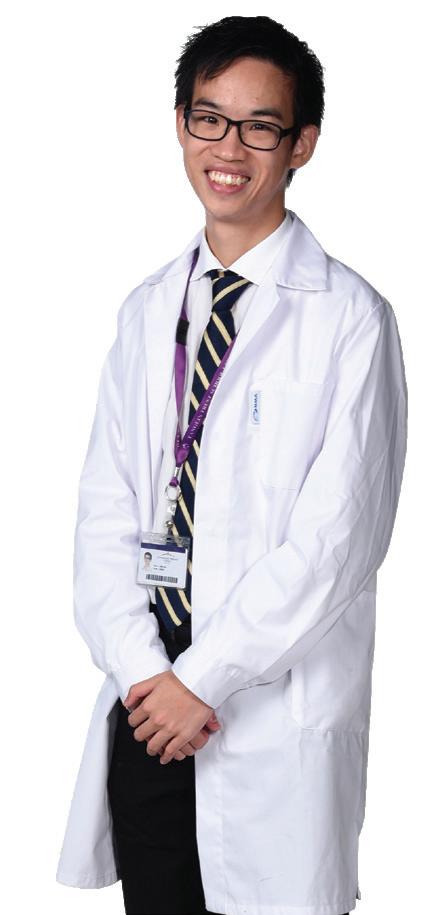
This programme allows us graduates to explore working life, the building of relationships between colleagues, refining communication skills and understanding different approaches to tackle tasks. Another benefit which I thought was key, was adapting to changes of plans or learning how to resolve struggles which I believe plays an important role in both university and working environments.
Working at Tanglin has been a highlight and thoroughly enjoyable, especially with the school environment and staff being very welcoming. Returning to the Junior School, after a long time, was definitely memorable. It was nice to have a sense of familiarity and to re-connect with past teachers like Mr Hinckley, Mr Hussein, Mrs Rushworth, and Miss Robinson.
I think Tanglin prepares its students for life beyond school through its multicultural and diverse community. This great opportunity to learn about ‘other’ cultures, upbringings and beliefs is something special and important to understand besides academics.
Post internship, I hope to study dentistry at the National University of Singapore or the University of Melbourne.

My family moved out to Singapore in 2008 where I started Year 4, and my brother was in Year 6. I thoroughly enjoyed this part of my life in the Junior School competing in numerous school tournaments, FOBISIA, etc. After what felt like a short five years, I left Tanglin after finishing Year 7 and moved to Bangkok Patana school where I studied for two years. This followed by a return to Tanglin in Year 10 all the way to my graduation in Year 13.
I had always had a strong interest in doing it ever since hearing about it in Year 13. I have had numerous friends complete the internship in a variety of departments and have only ever heard good things come from it. Unfortunately, throughout my university life, the timings never aligned for me to complete it until I graduated with an undergraduate degree earlier this summer. After numerous conversations with the PE team, I felt like the timing worked in my favour as I had completed numerous work experiences that added a wealth of industry knowledge I was able to share with Tanglin students.
This 6-week programme benefitted me extensively. I learned how to effectively deliver my lesson to a range of age groups such as Year 13s and Year 12s all the way to Year 2s and Year 3s within a short timeframe. Each age group requires a different technique and style that reflects their development. This helped me develop as an individual through exposing myself to a range of coaching techniques required.
I absolutely loved it and wished I could’ve stayed on. Despite a lot of changes over the four years that I have been away, especially with COVID-19, I still felt like I was able to slide right back in and work with teachers
who had taught me from years ago. The buyin and respect earned from the students allowed me to work closely with them in order to help them progress and prepare them for performance. I enjoyed working with the U19 Touch Rugby in the lead up to their tournament in Australia and the U19 Boys Football team who saw an undefeated period. I thrived in the environment I was in due to the PE team’s willingness to nurture me. I must thank everyone for allowing me to develop as an individual.
I believe the support network that spreads so far globally allows Tanglin individuals to prepare for what is sometimes overwhelming. This network ranges from the school’s support to small conversations with Tanglin alumni who have gone through similar life experiences regardless of cohort or age. The alumni team is proactive with strengthening this sense of community through regular events such as the annual Tanglin Alumni Event. I have enjoyed attending and catching up with some familiar faces including teachers each year!
I am completing my Master’s in Strength & Conditioning at Loughborough University. This will be an exciting year ahead for me with lots of practical elements and the ability to build on what I learned in Singapore. Post-graduation, I really hope to target up-and-coming sports markets out in the Middle East and SouthEast Asia. Therefore, I hope to be nearby or even in Singapore working in elite sports with toplevel athletes.
■
How does the internship benefit Tanglin graduates like you?
”
“
I think Tanglin prepares its students for life beyond school through its multicultural and diverse community.
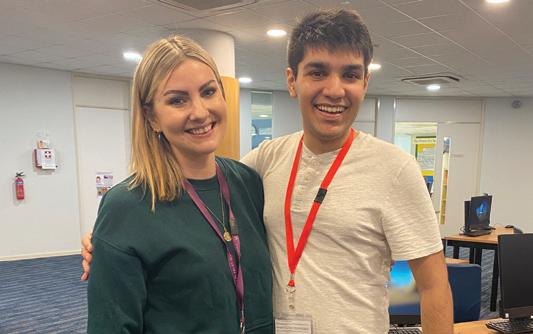
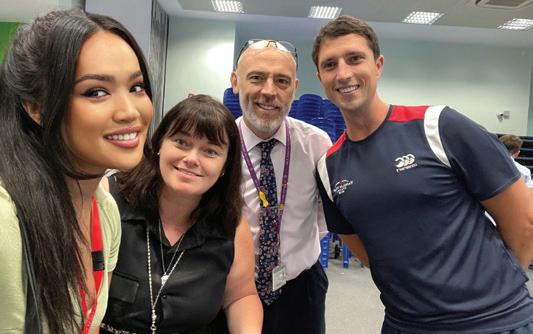
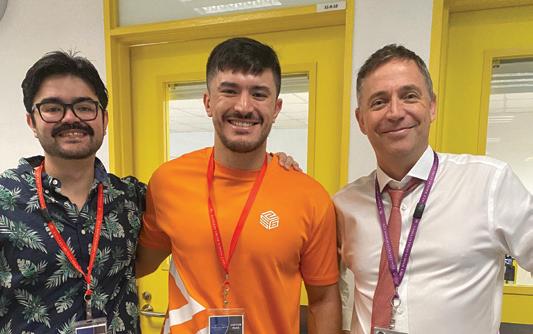
Since the start of the school year, Tanglin alumni of various cohorts have been dropping by their alma mater to catch up with their former teachers. Ailsa Sherrington, for instance, returned to Tanglin with her partner to reconnect with Clair Harrington-Wilcox, her former Year 6 teacher and now the Head of Junior School. Ailsa attended Year 6 in 2006, but left in 2010 after completing Year 9. She is currently the Editorial Lead at Protos, a cryptocurrency news website, in Netherlands. Clair, who was happy to see her former student, couldn’t have agreed more. She told us, “What a delight to welcome back Ailsa, with her partner Tom, on a surprise visit to Tanglin. I had the good fortune to teach her while I was Head of Year 6. Such a special moment! All the best for the future, Ailsa.”

Tanglin alumni who would like to drop by the school for a visit can fill out the form at https://alumni.tts. edu.sg/#visittanglin so the Tanglin Alumni team can schedule visits with their former teachers.
From top: Yin Noe
Top: Ailsa and her Year 6 class in 2007; Left: Clair HarringtonWilcox (Head of Junior School) with Ailsa Sherrington and her partner, Tom.
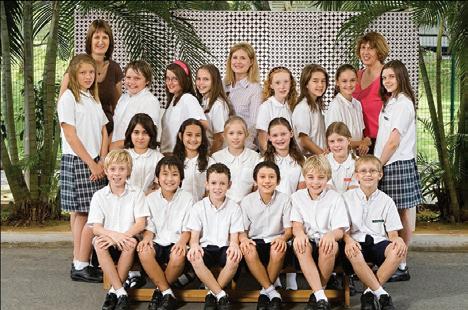
As international travel gradually returns to normal, Tanglin is delighted to welcome a string of alumni back on campus! Here are some highlights.(2013 Cohort) with Mhairi Aluthge-Donna (Assistant Head of Faculty, Business and Economics), Anthony Graves (Mathematics Specialist) and David Fourie (AHOF Maths and ICT Faculty); Catherine Meehan (Assistant Head of Faculty, English) and Rohan Mengi (2022 Cohort); Matthew Ooi (2013 Cohort) and David Ooi (2008 Cohort) with Nicholas Hulburt (Assistant Head of Faculty, Physics)
What better way to plan for the future ahead than learning from those who have gone before you? Several recent graduates from the Class of 2021, including those who are currently serving National Service returned to Tanglin at the end of Term 3 last school year to give their take on university applications and what to expect during National Service. Over 12 Alumni also volunteered to share their personal experiences with Sixth Formers, who were eager to know more about sharing dormitories in university, studying in the USA, gap years, as well as what to expect of university life in general. Needless to say, the session was extremely popular with the Sixth Formers. Shakila Samuel, Head of Community Relations, said, “it was wonderful seeing our Alumni come in to share their experiences. We are sure that the session was useful for our Sixth Formers. Current and future cohorts of Sixth Formers can also look forward to similar sessions in future as we work on connecting with our Alumni.”
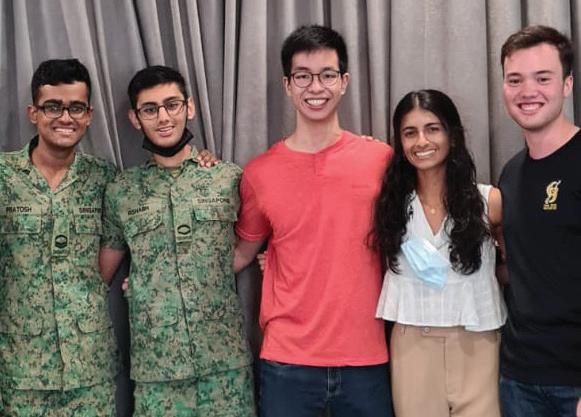
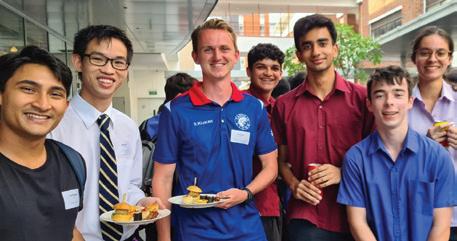
Over 50 Tanglin graduates from the Class of 2022 attended the Year 13 and Alumni Social at Tanglin in September recently. They not only had the opportunity to catch up with their former teachers over food and drinks, they also had a wonderful time mingling with younger students from Year 13 and sharing important information about university courses and applications. ■
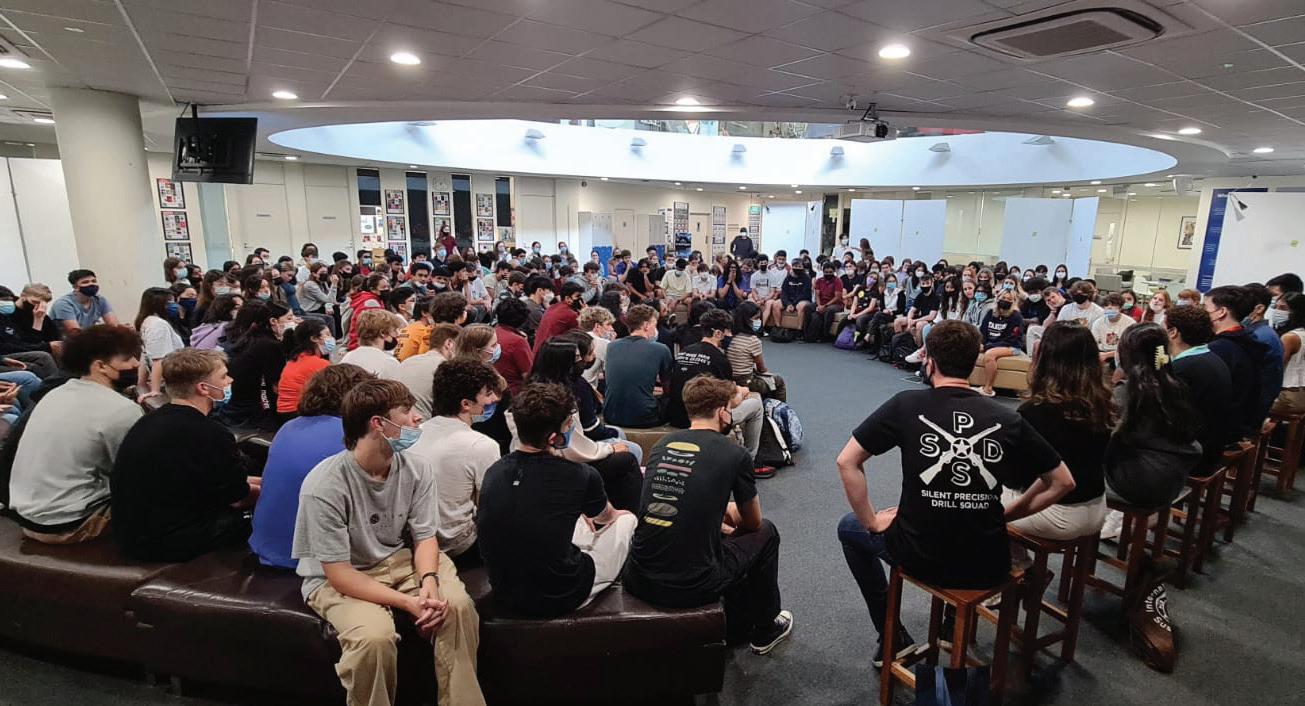
Want to join the next Alumni Social? Then look out for the latest news at https://alumni.tts.edu.sg or connect with Tanglin Trust School and Friends of Tanglin on Linkedin by scanning the QR codes below.


From earning a degree in drama to becoming a coach who is committed to making workplaces more human and innovative, Lisa Gill (2005 Cohort) has reimagined herself in more ways than one. We chatted with her to find out her Tanglin story.

Career paths used to be traditionally linear but as the world evolves, more and more graduates are taking on a non-linear one. Lisa, from the Class of 2005, is one of them. She said, “I graduated from the University of Manchester with a BA Honours in Drama and after realising that I wasn’t quite cut out for acting, I explored lots of different jobs in different industries – the arts, media, PR, software, travel – and finally ended up in a learning and development company in London. There I developed a passion for areas like leadership and organisational culture.”
Although it was quite a big leap from her original career path, Lisa made the best of it and even set up her own company, Reimaginaire, where she coaches organisations that are interested in becoming self-managing. She also facilitates leadership courses that train people in a more adult-adult, coaching style of leadership with a company called Tuff Leadership Training. So what made her decide to choose this career path?
Lisa explained, “When I was working in the learning and
development sector, I became increasingly interested in the more radical organisations that were challenging the status quo to make workplaces more human and innovative. One particular instance that stood out to me was Buurtzorg, an organisation in the Netherlands with 15,000 nurses and no managers. It has transformed the home care sector and inspired copycat models around the world. Eliminating needless bureaucracy and humanising work has led to soaring employee and patient satisfaction, and Buurtzorg’s overhead costs are a third of their competitors. Inspired by how I could make this kind of a difference in people’s workplaces, I decided to set up Reimaginaire where I work with organisations such as SAP and Save the Children to develop self-managing, sustainable teams that can thrive in an ever-changing world.”
Aside from her work, Lisa is also passionate about sharing examples of progressive organisations in the global south on her platforms because many management books are written from a eurocentric perspective. And that’s not all. Lisa went on to publish her first book Moose Heads on the Table in 2020, created her own podcast called Leadermorphosis and was even named on the Thinkers50 Radar 2020 list for helping to make self-managing teams a reality through her work. Sounds like Lisa has been pretty prolific in the past few years!

As a Tanglin student, Lisa told us that her teachers had a positive impact on her even though she admitted that she could be a difficult teenager. Mr Veness, in particular, challenged her during drama lessons to look at the world differently and gave her the opportunity to perform at the Esplanade twice. Mr Curran created a jazz band, which in turn gave Lisa great memories of recording in a studio while Mr Date helped her overcome her phobia of Maths with his friendly approach. She said, “There are many more I could name who had a real impact on me and I made some lifelong friends at Tanglin, in both students and teachers. I’m still in touch with several of them to this day. It’s a real joy to see my friends thriving in their lives, both in their
careers and also starting families of their own (I’m 35 now!). And we’ve certainly coached and helped each other over the years – for job interviews, for next moves and so on. The Tanglin experience is quite unique and it’s special to stay connected with people who shared it with you.”

Having travelled down a career path that was anything but linear, what advice does Lisa have for our Class of 2023? She replied with an encouraging smile, “Don’t worry if you have no idea what you want to do! My biggest piece of advice is to be curious and try things. The world of work is changing fast and one of the best skills for the future is the ability to unlearn, learn and relearn. Have an explorer’s mindset, try lots of things and have fun! There are great places to work out there – organisations that want you to be your whole self and really drive things, and not be just another ‘employee’.” ■
Wise words indeed, Lisa. We are glad that you have found your calling just by going off the beaten track! If you want to find out more about what Lisa is currently doing, visit her website at www.reimaginaire.com
The Tanglin experience is quite unique and it’s special to stay connected with people who shared it with you.”From left to right: Lisa Gill, Carly Aslett, James Hynes, Chris Kearns, and James Conlon (in front), all from the 2005 Cohort Lisa (far left) and Carly Aslett (far right) played twins Viola and Sebestian during a performance of Shakespeare’s Twelfth Night.

It’s been almost 30 years since Sunny Gill left Tanglin in 1995, but he still counts his time there as one of the most memorable times in his life. He reminisced with a smile, “I had a fantastic time at Tanglin! My life at school was filled with a lot of laughter; I enjoyed the sports days and hot dog sales. I also remember taking part in the Christmas play and playing Father Wolf in The Lion King.” Sounds like Sunny’s Tanglin experience was a fun and exciting one! What was it like studying in Tanglin from 1989 to 1995? “Back then, my teachers played a very significant role in my learning journey. Their positive influence as well as the opportunity to meet peers from various countries from across the world, opened my eyes to so many different views and perspectives – and a whole new way to think about life.”
After leaving Tanglin, Sunny continued his secondary education at United World College (UWC) and went on to study Economics and Marketing at Babson College in the USA. After he graduated, Sunny moved to Dubai in 2008 to set up and oversee ten retail and F&B concepts in the Dubai mall, which is the largest mall in the world. He successfully built the business into one with annual revenues exceeding US$60 million a year and subsequently received an offer for his equity in the business in 2013. Sunny then moved to Indonesia to launch the H&M franchise, which opened two stores within the first month and has since expanded to over 92 H&M stores in Thailand, Indonesia and now Cambodia with plans for 100 more stores. He also runs the Gill Capital Family office and keeps a keen eye on its investments in F&B, lifestyle as well as tech businesses in the US, Europe and Australia.
What is his secret to success? Sunny told us, “Hard work, persistence, and to never give up”

Although it’s only been 16 years since Sunny graduated from university and joined the family business, he is no stranger to the inner workings of retail. From a young age, Sunny and his sister Sunaina would spend weekends and their summer breaks making deliveries or helping out in one of their family’s retail stores. Working would help the siblings in more ways than one
because it not only taught them how their family business worked from the inside out, it also helped them develop a keen business acumen.
Knowing what he knows now, how would Sunny advise Tanglin alumni or current students who want to run their own business in the future? He said, “Self-belief, perseverance and consistency are essential qualities for setting up a business. Entrepreneurship comes with a lot of challenges and the entire world is against you and will tell you that you are making a mistake. You have to overcome that, and then build a business! Tough, but very exciting and highly rewarding.”
As a successful businessman, Sunny believes in keeping his connections with friends - especially those from Tanglinclose to his heart. In fact, two of his best friends were from Tanglin and even asked Sunny to be their best man at their wedding. He said, “It’s such a blessing to have them as my closest friends and I will treasure it. 34 years of friendship and counting.”
And that’s not all. Sunny is also planning on sharing his entrepreneurship experience with Tanglin students during one of Senior School’s Career Days so don’t forget to keep an eye out for the latest update! ■
Like many of our Tanglin Alumni throughout the world, Sunny Gill is making waves as one of the driving forces behind Gill Capital - the Singapore-based business behind successful retail heavyweights such as Candylicious and H&M. We caught up with him to find out more.Sunny (right) with Tanglin friends
Everyone enjoys a good movie but making an Oscar-worthy production? That’s something that requires passion and the tenacity to overcome any obstacle, much like Tanglin Alumnus Charlie Budden (2016 Cohort).

As a little boy, Charlie loved the art of filmmaking but it was in Junior School when he decided he wanted to forge a career in film. When Tanglin introduced the Film Studies course for (I)GCSE, Charlie decided to pursue it and later studied Film at A-Level. Now he is based in London and living his dream after graduating from Arts University Bournemouth. It was there that he wrote and directed the film Oh, Little Spark!, which won a grand total of 16 awards at multiple film festivals globally, including four ’Best Short Film’ awards, three ‘Best Director’ awards, and one ‘Best Original Story’ title.
Tell us about yourself. When did you start studying in Tanglin and what did you do after that?
I joined Tanglin as a Year 1 student almost 20 years ago and graduated in 2016. Looking back over those 13 years, it was a privilege to have studied at Tanglin. I had some excellent teachers and film studies was my favourite subject. I recently graduated from Arts University Bournemouth in BA Film Production. Since then, I worked as a 3rd AD and Director’s Mentee on a government-funded commercial in Singapore. I have also been marshaling on Netflix and ITV productions.
How and when did you become interested in the film industry?
When I was eight, I had the opportunity to be the foreign correspondent for an online video platform service specialising in educational children’s videos. My passion for Film started to grow and at (I)GCSE level when Tanglin introduced the Moving Image Arts subject, I jumped at the opportunity. My (I)GCSE production, which I worked on with Tanglin classmates, Stuart McHale and Sam Allen, won an award for Best Short Film at the
2014 BFI (British Film Institute) Moving Image Awards in London and this inspired me to study Film & Media at A-Level. My Film teachers, Mr Coughlan, Mr Astley and Mr Dunk also played important roles in my decision.
Of all the films you’ve produced, which is your favourite?
My favourite piece I have written and directed is my latest short film Oh, Little Spark!. The story is deeply personal to me and I was privileged to work with an incredibly talented and collaborative crew, especially the wonderful actress, Rula Lenska, the star of the film.
Tell us more about Oh, Little Spark!. How did the story idea come about, what were some of the challenges you faced and how did you overcome them?
The story of Oh, Little Spark! is inspired by my relationship with my Polish grandmother, as I have always been interested in capturing the special connection we shared. I also wrote it with the wider intention of portraying the universal relationship between a grandchild and a grandparent, and how precious these bonds can be. At its core, it is a film that deals with the duality of death and trauma, blending together elements of levity and poignancy to create a devastating, yet uplifting story about this enduring relationship. As a writer and director, I hope the authenticity I bring to the story establishes a genuine emotional resonance with the audience, and by the end of it, they might want to give their grandparents a call! This is what I hope everyone takes away from the film.
The biggest challenge was fundraising; making an independent film costs a lot of money. Through a well-organised crowdfunding campaign, we successfully raised the funds and it went on to become the highest funded project at my university.

My long-term goal has always been to write and direct a feature film. It is an exciting time as lots of streaming services have newly built studios with content constantly being produced and I can’t wait for the future to unfold! ■

The Class of 2022 has graduated and off to a bright future with limitless possibilities. What do they view as their proudest Tanglin achievement? Here are some of their takes:
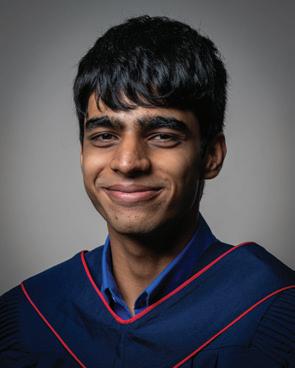
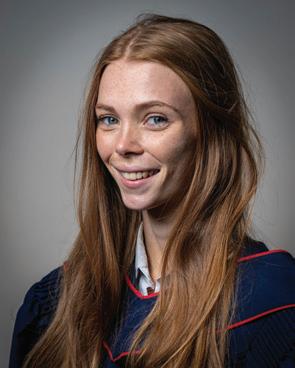
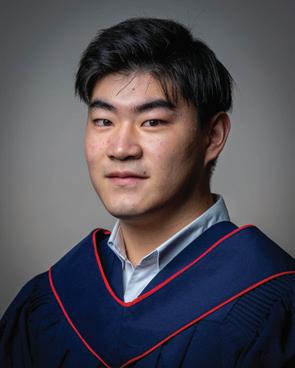
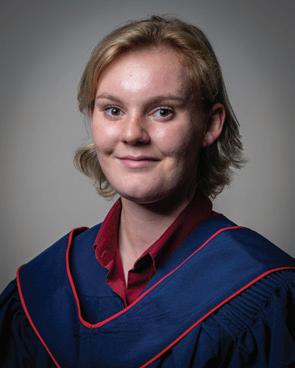
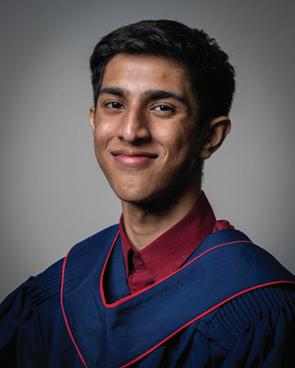
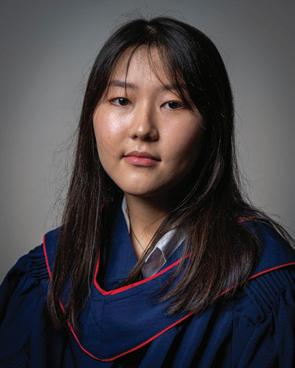
Realising I didn’t actually want to go to art school just yet and that all artists need to get smarter if they want to make any difference!
Overcoming my fear of heights on trips and joining debate and public speaking (Something I never did because I thought I was bad at it)

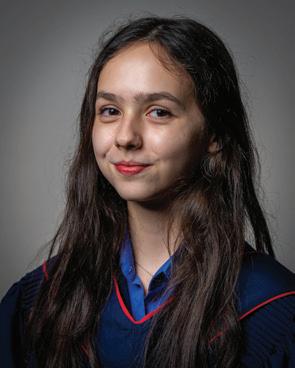
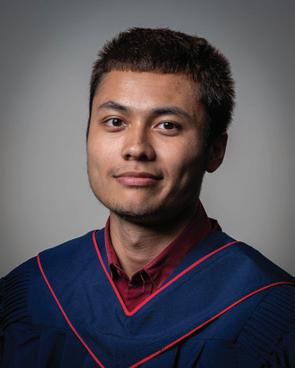
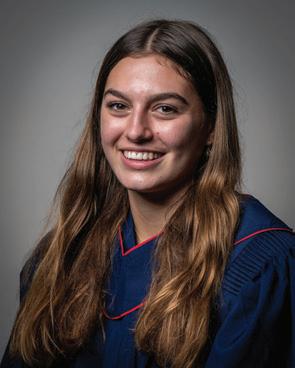

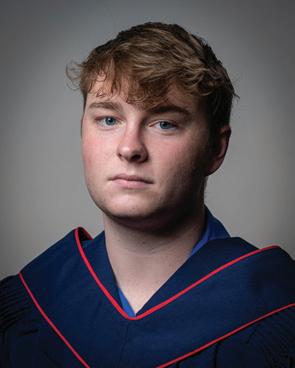
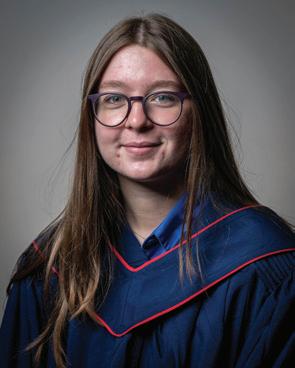
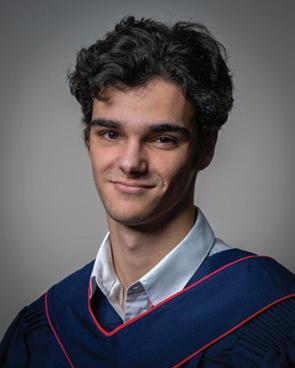
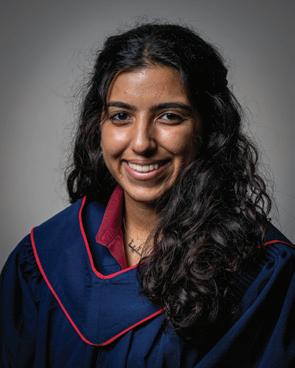
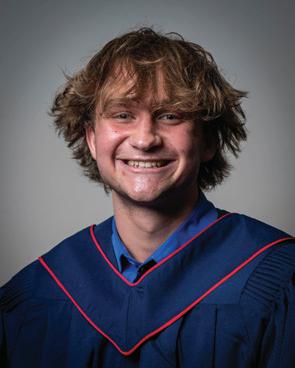
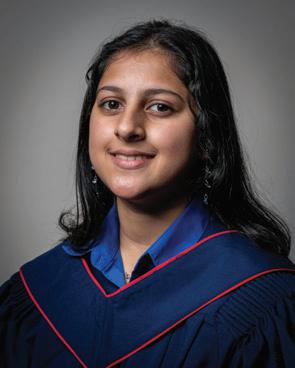
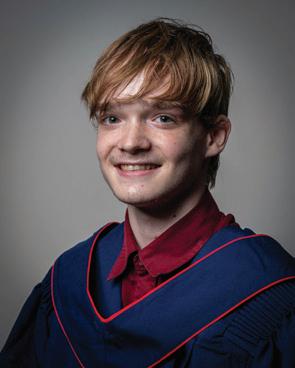

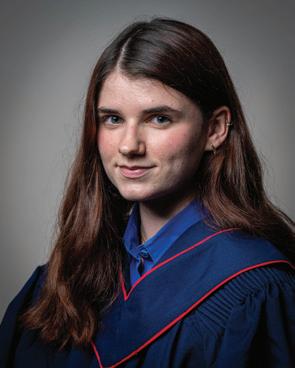
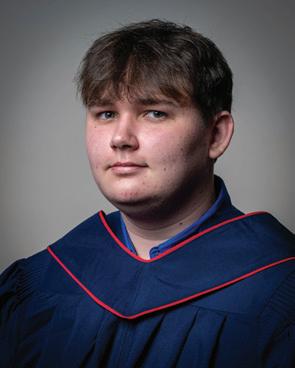
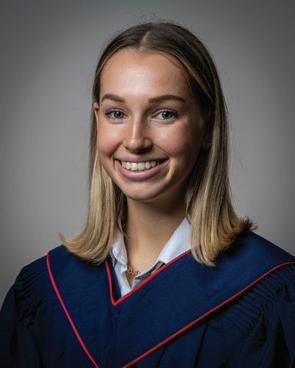
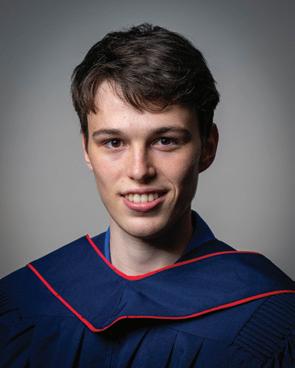
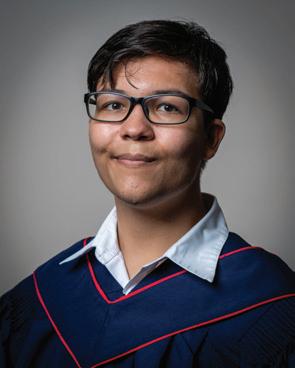





THEWe dug into the archives and here is what we found in Tanglin’s long history of excellence.
Giving back to the community is not new at Tanglin, but do you know that back in 1935, our talented students performed Toad of Toad Hall in aid of the Waifs and Strays Home? In fact, their acting was so universally loved that they were given an honourable mention in the Straits Times!

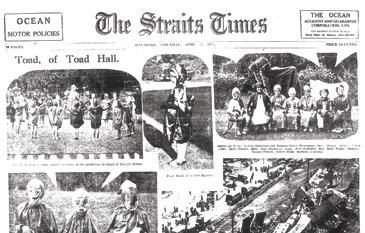
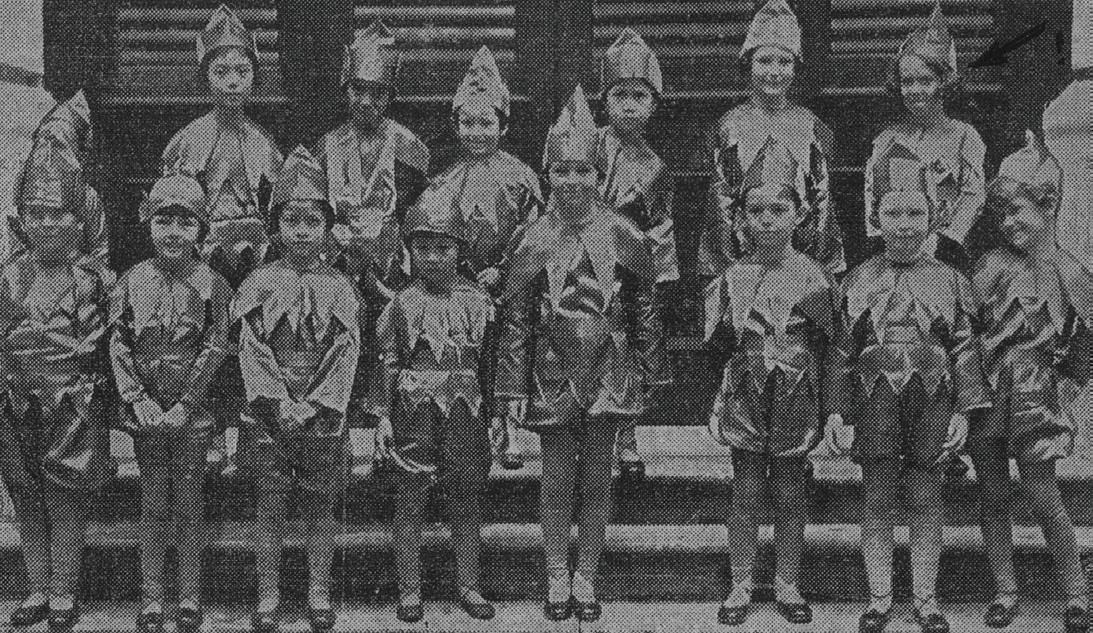
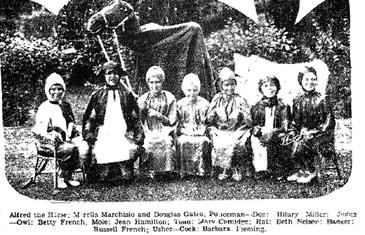
When the Hotel New World disaster struck Singapore in 1986, one of our Tanglin parents was onsite to lend his tunnelling expertise to the rescue efforts. Here is a story by his daughter Paula and a well-illustrated picture by Sherry.


Tanglin was also an early adopter of new technology back in 1995. Our students were extremely fascinated with the light pen!
Do you have photos or stories from Tanglin’s rich and long history you want to share with us? Then drop us a note at alumni@tts.edu.sg. ■
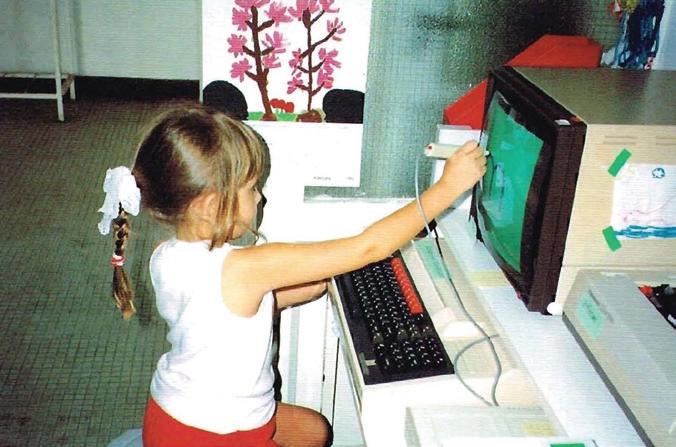
Since 2012, the TTS Foundation has funded projects to provide Tanglin students and alumni exceptional educational opportunities above and beyond the curriculum. Tanya Sahni, Development Manager, shares some highlights from Term 1 2022/23.

The Gold Coast Titans All Schools (GCTAS) is the world’s largest touch football tournament, with over 485 teams representing various schools nationally and internationally. Tanglin has been participating in this tournament for the last ten years to support the growth and development of our students. This year, the TTS Foundation subsidised the travel for the Tanglin U19 Touch Team to the Gold Coast in Australia. The Tanglin girls came together to compete, perform, bond, and create lifelong memories in a very special tournament.
The TTS Foundation was pleased to sponsor David Faulkner MBE OLY as the inaugural speaker for The Institute@Tanglin’s Speaker Series. During his sessions, David interacted with more than 300 Tanglin parents on topics that explored how best to support our children’s aspirations and wellbeing in sports, athlete development, and DEI (Diversity, Equity, and Inclusion). David also spoke at Junior School and Middle School assemblies about his experience at the Olympics and discussed the importance of teamwork and doing your personal best.



The World Scholars’ Cup is an international academic programme with more than 15,000 students from 65 countries participating every year. This year, the TTS Foundation helped subsidise travel costs for 17 Tanglin families and students who went to Bangkok to represent the school at the Global Round. We are happy to say the students have done our school proud. Tanglin was the highest overall achieving school in the competition with a spectacular 111 medals and commendations in total.


The TTS Foundation sponsored the student-led Tanglin Hackathon 2022, where students “hack” together a fast proof-ofconcept solution to a challenging problem, presented on the day. Students must work fast to program solutions, prepare presentations and pitch their ideas to a panel of judges. This year, almost 100 students from across the school took part in the hackathon. Year 12 students worked for over a year to build the schedule, source speakers, and judges, as well as manage the budget for advertising, refreshments, and prizes. The team for next year is already busy preparing for an even bigger and better Hackathon 2023!
If you are passionate about your child’s education, please consider becoming a Parent Advocate. You could help raise awareness of TTS Foundation projects, support fundraising efforts and answer queries about the TTS Foundation from a peer-to-peer perspective. We are specifically looking for Parent Advocates for a few specific classes and would love to talk with you over coffee. Please let us know of your interest at foundation@tts.edu.sg.



Opportunities come up every day, but it’s what you do with them that really matters. Here are three Tanglin parents who jumped at the chance to make a difference with their talents.
When opportunity knocks

Agi Heale is not only the mother of two children (one is currently in Year 1 at Tanglin), she’s also a Leadership Coach & Facilitator based in Singapore. She started her career in Financial Services recruitment in London, and ended up as a Director managing three teams in a fast paced environment. She said, “I realised that recruitment wasn’t where my heart was, but loved coaching my team and clients through transitions – that was where my true passion lay. I went on to train as a certified professional coach (CPCC, PCC and Certified Master NLP Practitioner). I built my coaching practice in London, and now in Singapore (Westbourne Associates Pte Ltd), where I run leadership development programmes and coaching engagements to help clients build confidence and operate at their best.”
And that’s not all. Agi also published Generation Panic, a book filled with tips and techniques for anxious professionals to get back on track. In fact, it has over 100 tools that are accessible and easy to apply during times of anxiety.
Agi explained, “over eight years ago, I was really struggling with anxiety and panic attacks and was desperate to find a ‘one stop shop’ that was going to have everything I needed to get back on track. I felt very lonely and had no idea where to start. I couldn’t find the book that I desperately wanted and needed, so I wrote Generation Panic. It was quite simply written for me; a reminder of all the things I could do to feel myself again and so I could continue to perform at my best. My hope is that the book becomes a guide and a companion to help others. The reader can return to it again and again whenever they might need a booster or a refresher to feel stronger in the face of anxiety. The
reader also gets to choose what they need for them. I have not had a panic attack since that time as I use the tools in these pages daily and remind myself of the techniques whenever I need to.”
Although Agi wrote Generation Panic as a way to help manage her anxiety, she tells us that the book is also a useful tool for children. She said, “I believe that if children have the tools from a young age they are better equipped to deal with any challenges they face. For me, I didn’t even know what anxiety was when I found myself in the middle of a panic attack. I had never been educated on these kinds of topics, so I was terrified as I had no idea what was happening to me. The tools in the book are not overly complex – they are designed to be simple and practical things that anyone can use to feel better. I strongly believe that no one needs to feel how I did, and it is purely about accessing the right techniques, finding what works for you and building self-awareness. If we can get the tools into the hands of kids from a young age, they will be able to handle far more – and lead a life that is happy, confident and resilient.”
Agi’s book is now on Amazon, Book Depository or Audible.

My hope is that the book becomes a guide and a companion to help others. ” “
You may know Katie Martin-Sperry as a fellow Tanglin parent, but do you also know that she’s a professional photographer? In fact, she comes on campus from time to time to capture theme days such as Magic and India Day. “It is a great insight into the year groups and how the school operates, which as a parent you don’t get to see on a day to day basis. It is no surprise that my kids love it there. The teachers get really involved and go to all sorts of lengths coming up with different themes for each year group, there is so much energy and a real sense of fun,” Katie beamed.
It all started at the age of 16, when she was never without a camera and always capturing friends. Katie reminisced, “I studied A level art and spent most of my time in the school darkroom developing my own holiday photos, I would get completely immersed into it, hours would go by and I would completely lose track of time. Back in those days, the art of photography was always such a mystery as film was used (now I am really showing my age!), you would take a photo and not know what it would look like until you got your roll developed. Sometimes
rolls wouldn’t be developed for weeks or months so the results were often a surprise. My photos would get delivered weeks later but there was always so much suspense and excitement when they arrived. There were always photos you had forgotten you’d taken, so some images were a revelation. I think the love for evocative and beautiful imagery is a big driver in why I have gone down this path. Even now, after a successful shoot, I love racing home after and looking back on the images that I have just taken.”
Katie would later move around the world and take on various corporate roles, but she never forgot her love for photography. She took an evening photography course at the Chelsea College of Arts but Katie only started to pursue photography as a full-time career when she moved to Singapore. She said, “I believe it was all down to fate. When I moved to Singapore and was two months pregnant, I realised it wasn’t easy to secure a job. Wondering how I would spend the next nine months, I put my passion to work and took photos of friend’s kids and parties, and the whole thing evolved from there. Knowing that the hours I previously worked weren’t kind and with a baby arriving soon, it felt like a natural path as well as the demand for kids’ photography.
Katie’s talent and eye for beautiful photos would soon earn her Expat Living’s Silver Award for Best Photographer. How did it come about? “That is a very good question!” Katie told us with a smile, “I was completely taken back that I had managed to make it up on Expat Living Shortlists as one of the best Photographers in Singapore. It is essentially all down to my lovely loyal clients who voted for me. I remember being at my desk on the morning of the announcement and friends were texting me to congratulate me, I had no idea as I hadn’t opened my emails.”
Visit Katie’s gallery on her website at katiemsperryphotography.com to see her portfolio.

Telling stories through photos
The teachers get really involved and go to all sorts of lengths coming up with different themes for each year group, there is so much energy and a real sense of fun.
There are many ways to help our children become future-ready, but Tanglin parent and tech enthusiast Vidhi Singhal took it a step further. She creates unplugged activities to help her children build computational thinking and even wrote a book called Pre-coding for Kids: An Offline Skills-building Activity Book for ages 4-6 and 5-7.

How did she do it? By setting up Kinder Koder (www.kinderkoder.com), where she creates content to teach computational thinking in a fun and engaging way. “It doesn’t focus on any specific programming language because they could become outdated over time,” Vidhi explained, “instead, it seeks to introduce the underlying skills that would provide a strong foundation in this area. Learning computational thinking can teach children to solve everyday problems efficiently and creatively. Children learn the same skills coders use e.g. writing clear instructions and recognising patterns.”
Pre-coding for Kids: An Offline Skills-Building Activity Book introduces foundational concepts of coding through engaging age-appropriate activities. The exercises are specially designed to be intuitive and no prior knowledge is required. With its fun activities, this book aims to future-proof and equip preschoolers for the digital environment without increasing screen time. In fact, Vidhi told us that her book is perfectly aligned with Tanglin’s 3-14 curriculum. She said, “I was delighted to see “Computational Thinking” as a knowledge category in the Technology and Computer Science subject.
This book supports that learning and to be honest there is very little screen-free content available in the market as teaching computational thinking to preschoolers is still at a very nascent stage.”
According to Vidhi, the inspiration for the book came from spending time with her son during the pandemic. She said, “As a computer programmer, I always had keen interest in encouraging my children to develop computational thinking/problem solving from an early age. During the 2020 pandemic I got a lot of time at home with Arsh. It was then when I started creating activities for him to practise. Not only did he really enjoy these activities I could see him improving and learning in the process. I looked around for more content and enrichment classes but unfortunately did not find any. Seeing the big gap in the market I decided to quit my corporate job and venture out on my own. That was the beginning of Kinder Koder where I teach, write books and develop screen free games for kids.”
Vidhi is currently working on another book for 3-4 year olds and has a few board games in development. In the meantime, you can purchase Vidhi’s books at KinderKoder.com or at all Popular Bookstores. ■

“ This book aims to future-proof and equip preschoolers for the digital environment without increasing screen time.

In September, I had the pleasure of discussing the design for the new Centenary Building with two architects from P & T Consultants. This project has been in the works for around 3-4 years and is eagerly anticipated to be fully operational in 2023. As I am looking to study architecture in the future, I was interested in the process that led to the final design of this building, and the techniques and strategies used throughout the building to promote sustainability, diversity, equity, inclusion, and more.
When describing the intention for the building, the architects said that they envisioned it as a meeting point of the different architectural identities in the surrounding area. There are futuristic, modern buildings like Fusionopolis and Mediapolis, and there are conserved buildings in areas such as the Wessex Estate. The Centenary Building will be an intersection between future and past. There are modern and contemporary elements, like the clean modern lines featured in the building’s design, and there are also traditional touches to celebrate the other architectural styles in the surrounding area. The architects explained to me, “This is the product of the architect’s job, to envision the architectural language and expression of the building based on its context.”
The architects stressed the importance of active and passive design strategies in achieving sustainable design and energy efficiency. We discussed the
unique considerations for designing in a tropical climate, like Singapore. Some of the main factors are acoustic performance, light and thermal comfort.
The high dependency on airconditioning in Singapore (to maintain thermal comfort and acoustics) means that the energy consumption of the building needs to be managed. This is achieved using passive design solutions. These are simple but important design principles that utilise natural energy, including building orientation, shading and naturally ventilated spaces, and all work to reduce energy consumption. The building should be designed to allow daylight but limit direct sunlight, as high heat loads come with sunlight. Active solutions include implementing structures and systems to maximise energy efficiency, such as energy efficient air conditioning systems and appliances, low heat glass that keeps the solar heat out, as well as solar panels on the roof to harvest solar energy.
Another fundamental aspect of designing educational environments is designing every space to be a potential learning space. In the future, this idea may continue to evolve so it’s important to incorporate flexibility and adaptability into the building’s designs. The school spaces should be modular or multifunctional to give Tanglin the flexibility to redesign without major disruptions.
The Centenary Building is a way of honouring Tanglin’s historical significance – it is an improvement in the facilities for better teaching and learning to benefit students and the building will be used in nurturing the future generations. ■

The Centenary Building is slated to be completed this year, but have you ever wondered about the thought processes that go into designing it for Tanglin’s community? One of our Year 13 students met up with two architects from P & T Consultants to find out more.
How does Tanglin’s pastoral team support our children and young people who have to deal with social situations they have not experienced in a number of years due to COVID restrictions?
Richard Sellers, Deputy Head of Senior School & Director of Pastoral Care, shares more with us.
The easing and removal of COVID restrictions have been a relief to many. Freedom to work, play and mingle in large groups is undoubtedly welcomed. Still, we must remember that many of our young people have not had the opportunity to mix in such large groups for a long time and need guidance and time to rediscover or develop these social skills.
I have spoken to many adults who have found the return to offices and social events overwhelming or anxiety-inducing. Consequently, we must consider how this feels for our children and young people and give them time to adjust and be mindful of what constitutes appropriate and inappropriate interactions with their peers.

Banter is a term often used by children and young people, and describes jovial teasing or talk amongst friends. It is often used to establish a sense of belonging, understood by the group or a select few. Used this way, it can be enjoyed and be used as a good-natured form of entertainment. However, there is a risk that bullying behaviour can be excused as banter. There is a fine line between banter being good-natured and viewed as playful joking to turning into a form of bullying behaviour. Just because banter doesn’t constitute all the elements of bullying, it doesn’t mean it’s acceptable.
Helpful information for you to speak to your child about the term banter:
• When comments are based on appearance, race, sexuality, identity or disability, this is not banter.
• If it isn’t funny, don’t laugh! If you do not find comments aimed at you funny, do not laugh along with them.
• Be an upstander! If you can see that someone is not enjoying it, do not laugh along and don’t be afraid to point it out.
• Don’t make jokes about something you know your friend is insecure about.
• Just because you say it’s banter doesn’t mean it is. Think before you speak and ask yourself, would I find this funny if somebody said this about me or a family member?
The anti-bullying alliance defines bullying as behaviour that is hurtful, repetitive, intentional, and an imbalance of power.
• Hurtful: If the person on the receiving end perceives the behaviour as hurtful regardless of everyone else’s perception.
• Repetitive: If a person has been told to stop this behaviour, yet they continue.
• Intentional: If people know their actions are causing hurt and pain, they continue.
• Imbalance of Power: This could be via age, physicality or by a person manipulating or influencing other students to agree with them or encouraging them to create hurt or isolation.
If your child tells you or you suspect that they are the subject of bullying behaviour, please inform the school so that we can support the children involved and prevent further cases from occurring. The following guidance is designed to help you support your child if they disclose that they are the subject of this kind of behaviour:
LISTEN: It’s a privilege if your child chooses to talk to you about personal concerns. Thank them and acknowledge the bravery it can take to open up and talk about this. Remember that this is about them and their feelings, not you and yours, so try to hear your child out without layering your emotions (distress, anger, upset) over the conversation.

REASSURE: If bullying behaviour is occurring in school, your child may be reluctant for you to inform teachers. This is often because they fear it will make things worse. Be reminded that bullying behaviour is unlikely to stop unless you tell teachers at school. Bullying behaviour can rapidly erode a child’s self-esteem. One of your key jobs is to reassure them and help them realise that they have done nothing wrong, that you still love them, and that you will help them to ensure it stops.
ROLEPLAY: During a quiet time, explore what happens during bullying behaviour situations with your child. Think about the bully’s motivations, what response they’re trying to elicit, and what type of response might help diffuse the situation.
INFORM TEACHERS AT SCHOOL: Inform your child’s class teacher/tutor and Head of Year about the bullying behaviour by providing facts and evidence. Understand that it will take time for the Pastoral team to investigate and that they will have to get statements from the young people involved.
Tanglin Trust School takes all reports of bullying behaviour seriously. It will ensure the safeguarding of children, but we all need to remember that young people do make mistakes, and many of those who make hurtful comments do this for several reasons, including:
• They believe that what they are saying is a joke and not intended to hurt when they are being insensitive to their friend’s feelings.
• They have low self-esteem.
• They have been bullied and are looking to regain a sense of power.
• They are looking for attention.
• They are assertive and impulsive.
Tanglin Trust School will support all the students involved in bullying behaviour incidents, including the person inflicting the behaviour. Remember, hurt people hurt people, so it is essential that everybody requires the appropriate support and interventions. Targets of bullying behaviour and bystanders are
often unwilling to open up to adults if the only response is one of blame and punishment. Research indicates that the best approach is always to work with all students in a solutionfocused way. At Tanglin Trust school, we seek to:

• identify the facts
• increase empathy
• identify strategies for a positive way forward
In many cases, a resolution to prevent further bullying behaviour will be found through discussions with individuals or groups, focussing on the following:
• empathy for the feelings of the student experiencing bullying behaviour
• examples of appropriate behaviour
• strategies for resolving conflict among peers
• awareness of the Code of Conduct and inappropriate behaviour
This does not mean that there are no consequences or that the school does not use sanctions with students who have exhibited bullying behaviour. We must look at each incident case-by-case and consider all the different factors involved.
Children and young people develop and establish relationships and friendships with their peers at different rates and are often impacted by their emotional maturity. It is typical for a child’s friendship group to change frequently in line with their interests and hobbies. As children get older and become teenagers, they often conform to peer pressure, which can result in negative and positive influences, leading to changes in their friendship circle. The number of close friendships may decline, but the quality of these relationships can often become more trusting and intimate.
The Pastoral and Lifeskills curriculums at Tanglin Trust school are designed to help educate children and young people about relationships and friendships so they can develop the skills to interact positively yet deal with problems or issues as they occur. Children and young people are encouraged to inform staff of their difficulties, and please do not hesitate to contact the Pastoral teams if you have any concerns about your child. ■







